
Notice of Meeting:
I hereby give notice that an ordinary meeting of the
Strategy, Planning & Engagement Committee will be held on:
Date: Tuesday
13 February 2024
Time: 1:00
p.m.
Venue: Council
Chambers, Dunedin Public Art Gallery, The Octagon, Dunedin
Sandy Graham
Strategy, Planning & Engagement Committee
PUBLIC AGENDA
|
Chairperson
|
Cr Sophie Barker
|
|
|
Deputy Chairperson
|
Cr Kevin Gilbert
|
|
|
Members
|
Cr Bill Acklin
|
Cr David Benson-Pope
|
|
|
Mr Matapura Ellison
|
Cr Christine Garey
|
|
|
Cr Carmen Houlahan
|
Cr Marie Laufiso
|
|
|
Cr Cherry Lucas
|
Cr Mandy Mayhem
|
|
|
Cr Jim O'Malley
|
Ms Megan Potiki
|
|
|
Mayor Jules Radich
|
Cr Lee Vandervis
|
|
|
Cr Steve Walker
|
Cr Brent Weatherall
|
|
|
Cr Andrew Whiley
|
|
Senior Officer Nicola
Morand, Manahautū (General Manager Māori Partnerships and Policy)
Governance Support Officer Wendy
Collard
Wendy Collard
Governance Support Officer
Telephone: 03 477 4000
governance.support@dcc.govt.nz
www.dunedin.govt.nz
Note: Reports
and recommendations contained in this agenda are not to be considered as
Council policy until adopted.
|

|
Strategy, Planning &
Engagement Committee
13 February 2024
|
ITEM TABLE OF CONTENTS PAGE
1 Karakia
Timatanga 4
2 Public
Forum 4
3 Apologies 4
4 Confirmation
of Agenda 4
5 Declaration
of Interest 5
6 Confirmation
of Minutes 15
6.1 Strategy, Planning
& Engagement Committee meeting - 14 August 2023 15
Part
A Reports (Committee has power to decide these matters)
7 Strategy,
Planning and Engagement Committee Forward Work Programme 20
8 Residents'
Opinion Survey Quarterly Update: October-December 2023 27
9 Strategic
Refresh - Next Steps 35
10 Strategic
Refresh Advisory Panel - establishment of a panel to oversee the refresh the
Four Wellbeing Strategies 40
11 Review
of the Signal Hill Recreation Reserve Management Plan 2003 43
12 Dunedin
Town Belt Reserve Management Plan Notice of Intent 110
13 Otago
Harbour Reserve Management Plan Review - Notice of Intent 180
14 Items
for Consideration by the Chair 278
15 Karakia
Whakamutunga
The meeting will close with a
Karakia Whakamutunga.
|

|
Strategy, Planning &
Engagement Committee
13 February 2024
|
1 Karakia
Timatanga
The meeting will open
the meeting with a Karakia Timatanga.
2 Public
Forum
At the close of the agenda no
requests for public forum had been received.
3 Apologies
At the close of the agenda no
apologies had been received.
4 Confirmation
of agenda
Note:
Any additions must be approved by resolution with an explanation as to why they
cannot be delayed until a future meeting.
|

|
Strategy, Planning & Engagement
Committee
13 February 2024
|
Declaration of Interest
EXECUTIVE SUMMARY
1. Members
are reminded of the need to stand aside from decision-making when a conflict
arises between their role as an elected representative and any private or other
external interest they might have.
2. Elected
members are reminded to update their register of interests as
soon as practicable, including amending the register at this meeting if
necessary.
RECOMMENDATIONS
That the Committee:
a) Notes/Amends if
necessary the Elected Members' Interest Register attached as Attachment A; and
b) Confirms/Amends the
proposed management plan for Elected Members' Interests.
Attachments
|
|
Title
|
Page
|
|
⇩a
|
Register of Interests
|
6
|
|

|
Strategy, Planning & Engagement
Committee
13 February 2024
|









|

|
Strategy, Planning & Engagement Committee
13 February 2024
|
Confirmation
of Minutes
Strategy,
Planning & Engagement Committee meeting - 14 August 2023
RECOMMENDATIONS
That the Committee:
a) Confirms the minutes
of the Strategy, Planning & Engagement Committee meeting held on 14 August
2023 as a correct record.
Attachments
|
|
Title
|
Page
|
|
A⇩
|
Minutes of Strategy,
Planning & Engagement Committee meeting held on 14 August 2023
|
16
|
|

|
Strategy,
Planning & Engagement Committee
13 February 2024
|

Strategy, Planning & Engagement Committee
MINUTES
Minutes of an ordinary
meeting of the Strategy, Planning & Engagement Committee held in the
Council Chambers, Dunedin Public Art Gallery, The Octagon, Dunedin on Monday 14
August 2023, commencing at 1.02 pm.
PRESENT
|
Chairperson
|
Cr Sophie Barker
|
|
|
Deputy Chairperson
|
Cr Kevin Gilbert
|
|
|
Members
|
Cr Bill Acklin
|
Cr David Benson-Pope
|
|
|
Cr Christine Garey
|
Cr Carmen Houlahan
|
|
|
Cr Cherry Lucas
|
Cr Mandy Mayhem
|
|
|
Cr Jim O'Malley
|
Mayor Jules Radich
|
|
|
Cr Lee Vandervis
|
|
|
|
Cr Brent Weatherall
|
Cr Andrew Whiley
|
|
IN ATTENDANCE
|
Rob West (Acting Chief
Executive Officer), Nicola Morand (Acting Manahautū (General Manager
Māori Partnerships and Policy), Simon Drew (General Manager,
Infrastructure and Development), Gina Huakau (Corporate Policy Manager),
Jonathan Rowe (Programme Manager, South Dunedin Future) and Junichi Sugishita
(Senior Policy Analyst)
|
Governance Support Officer Lauren
Riddle
1 Karakia Timatanga
Cr Barker opened with a Karakia
Timatanga.
2 Public
Forum
There was no Public Forum.
|
3 Apologies
|
|
Moved
(Cr Sophie Barker/Cr Kevin Gilbert):
That
the Committee:
Accepts the apologies
from Cr Steve Walker and Cr Marie Laufiso and apologies for lateness from
Matapura Ellison and Megan Potiki.
Motion carried
|
|
4 Confirmation
of agenda
|
|
|
Moved (Cr Sophie Barker/Cr
Andrew Whiley):
That
the Committee:
Confirms the agenda without addition or alteration.
Motion
carried
|
5 Declarations
of interest
Members were
reminded of the need to stand aside from decision-making when a conflict arose
between their role as an elected representative and any private or other
external interest they might have.
|
|
Moved (Cr Sophie Barker/Cr Kevin Gilbert):
That the Committee:
a) Notes the Elected Members' Interest Register; and
b) Confirms the proposed management plan for
Elected Members' Interests.
Motion
carried
|
6 Confirmation
of Minutes
|
6.1 Strategy,
Planning & Engagement Committee meeting - 19 June 2023
|
|
|
Moved (Cr Sophie Barker/Cr Jim O'Malley):
That the Committee:
a) Confirms the minutes of the Strategy, Planning
& Engagement Committee meeting held on 19 June 2023 as a correct record.
Motion
carried (SPECC/2023/025)
|
Part
A Reports
|
7 Strategy,
Planning and Engagement Committee Forward Work Programme
|
|
|
A report from Civic provided
an update on the Strategy, Planning and Engagement Committee forward work
programme.
The Acting CEO (Robert West)
spoke to the report and responded to questions.
|
|
|
Moved (Cr Sophie Barker/Cr Cherry Lucas):
That the Committee:
a) Notes the Strategy, Planning and Engagement Committee
forward work programme.
Motion
carried (SPECC/2023/026)
|
|
8 Residents'
Opinion Survey Quarterly Update: April-June 2023 quarter
|
|
|
A report from Corporate
Policy provided a summary of the Residents’ Opinion Survey (ROS)
quarterly results. It also provided the Quarterly results shows a
comparison between the April-June 2023 quarter with the April-June 2022
quarter.
Corporate Policy Manager
(Gina Huakau) and Senior Policy Analyst (Junichi Sugishita) spoke to the
report and responded to questions.
|
|
|
Moved (Cr Kevin Gilbert/Cr Sophie
Barker):
That the Committee:
a) Notes the Residents’ Opinion Survey quarterly update.
Motion
carried (SPECC/2023/027)
|
|
9 South
Dunedin Future Programme Update
|
|
|
A report from Māori
Partnerships and Policy provided an update on the South Dunedin Future
programme, outlined key developments and foreshadowed the anticipated work
plan through to mid-2024.
General Manager Infrastructure and Development (Simon
Drew) and the Programme Manager, South Dunedin Future (Jonathan Rowe) spoke
to the report and responded to questions.
|
|
|
Moved (Cr Jim O'Malley/Cr Mandy
Mayhem):
That the Committee:
a) Notes the South Dunedin Future programme update report.
Motion
carried (SPECC/2023/028)
|
|
10 Items
for Consideration by the Chair
|
|
|
There were no items of consideration by the Chair advised.
|
|
11 Karakia
Whakamutunga
|
|
|
Cr Barker closed the meeting with a Karakia Whakamutunga.
|
The meeting concluded at 2:20pm.
..............................................
CHAIRPERSON
|

|
Strategy, Planning & Engagement
Committee
13 February 2024
|
Part
A Reports
Strategy, Planning and Engagement Committee Forward Work
Programme
Department: Civic
EXECUTIVE SUMMARY
1 The
purpose of this report is to provide a regular update of the Strategy, Planning
and Engagement Committee forward work programme to show areas of activity,
progress and expected timeframes fir decision making across a range of areas of
work (Attachment A).
2 As
this is an administrative report only, there are no options or Summary of
Considerations.
RECOMMENDATIONS
That the Committee:
a) Notes the Strategy,
Planning and Engagement Committee forward work programme as shown in Attachment
A.
DISCUSSION
3 The
forward work programme will be a regular agenda item which shows areas of
activity, progress and expected timeframes for decision making across a range
of areas of work.
4 As
an update report, purple highlights show changes to timeframes. New items
added to the schedule will be highlighted in yellow. Items that have been
completed or updated are shown as bold.
Signatories
|
Author:
|
Wendy Collard - Governance Support Officer
|
|
Authoriser:
|
Nicola Morand - Manahautū (General Manager Māori
Partnerships and Policy)
|
Attachments
|
|
Title
|
Page
|
|
⇩a
|
Strategy, Planning and
Engagement Committee Forward Work Programme
|
21
|
|

|
Strategy, Planning & Engagement
Committee
13 February 2024
|






|

|
Strategy, Planning & Engagement
Committee
13 February 2024
|
Residents' Opinion Survey Quarterly Update:
October-December 2023
Department: Corporate Policy
EXECUTIVE SUMMARY
1 This
report provides a summary of the Residents’ Opinion Survey (ROS)
quarterly results (the Quarterly results) (Attachment A).
2 The
Quarterly results show a comparison between the July-September 2023 quarter and
the October-December 2023 quarter. The previous report was presented to Council
on 28 November 2023.
3 The
Quarterly results show quarter-on-quarter changes in:
· residents’
overall satisfaction and dissatisfaction with 10 DCC services/facilities areas
· residents’
overall satisfaction with five aspects of the DCC and elected members.
4 Due
to there being no statistically significant change found in satisfaction/dissatisfaction
ratings, the results are a general indication only.
RECOMMENDATIONS
That the Committee:
a) Notes the Residents’
Opinion Survey quarterly results for the period of October-December 2023.
BACKGROUND
5 The
ROS is a monitoring tool utilised by the DCC to collect statistically reliable
results on residents’ satisfaction with DCC services and facilities and
perceptions of Council performance. It has been commissioned by the DCC every
year since 1994 in varying forms and provides an annual snapshot.
6 On
13 February 2023, the Strategy, Planning and Engagement Committee (the
Committee) requested quarterly updates on the ROS.
7 Two
quarterly updates have been presented in 2023 to the Committee and Council,
respectively. Following the changes to the Committee meeting schedule for 2024,
an adjustment has been made to provide a quarterly report to the Committee in
this meeting and the next meeting in April, which will be the final quarterly update.
8 The
Quarterly results have been prepared by GravitasOPG in consultation with
Corporate Policy.
9 The
current five-year contract with GravitasOPG ends with the delivery of results
of a 2023/24 annual survey, with sampling ending on 30 June 2024.
DISCUSSION
The ROS methodology and quarterly sample size
10 The annual
ROS is based on a sample of randomly selected residents aged 18 years and over
from the electoral roll, with a target sample size of 1,200 residents each
year. Participation is voluntary.
11 The sample
size for the October-December 2023 quarter was 349, ranging from 127 to 343
across 15 questions. The wide range of sample sizes could be due to any of the
following three reasons:
· The
answer was ‘’Don’t know”, which was not included in the
analysis.
· A
question was left unanswered, regardless of whether it was on purpose or an
oversight.
· The
question ‘10. Handling enquiries’ was only asked if a respondent
indicated in the previous question that they had contacted with DCC staff in
the last three months.
12 The samples
are weighted to known population distributions based on the 2018 Census data
for age, gender, ethnicity, and location. This is to reduce sample bias. Like
the ROS annual results, the Quarterly results are statistically tested.
Statistically significant differences are denoted with green and red arrows for
an increase and decrease, respectively. The results have a margin of error of
+/- 5.3%, similar to the previous quarter +/- 5.1%. It is important to note
that the Quarterly results have a greater margin of error because of its much
smaller sample sizes, compared to around +/- 2.6% for annual results.
13 Caution is
needed when considering any other increase or decrease in satisfaction ratings
that are not statistically significant, as they are not reliable.
Clarification
on terms
14 ‘Statistically
significant’ means a result is unlikely due to a random chance in
sampling and is likely due to some factor of interest (e.g., a meaningful
change that requires attention).
15 It is
helpful to understand that there is a strong relationship between determining
what is statistically significant, the sample size and margin of error. As the
sample size increases, the margin of error (i.e., uncertainty) decreases. This
is why, in a large sample size, a small percentage change could be deemed as significant
as the level of uncertainty (margin of error) is small. The change (even if it
is small) is deemed significant as the change is likely due to a factor of
interest. On the other hand, in a smaller sample size, a large change may fail
to be deemed significant due to a greater level of uncertainty. For example, a
large percentage change for question ‘10: Handling enquiries’ has
been deemed not statistically significant due to its small sample size and a
greater margin of error.
Finding of
ROS quarterly results: July-September 2023 quarter
16 Due to
there being no statistically significant change found in
satisfaction/dissatisfaction ratings, the results are a general indication
only.
17 There was a
general indication of increasing trends for overall satisfaction with two of
the 10 DCC services/facilities areas and of decreasing trends for seven areas,
with one unchanged. As for overall satisfaction with the five aspects of the
DCC and elected members, three showed an increasing trend, one showed a decreasing
trend, and one remained unchanged.
OPTIONS
18 There are
no options as this is a report for noting.
NEXT STEPS
19 Staff will
work with GravitasOPG to provide the Committee with the next quarterly update
report at its meeting in April 2024.
Signatories
|
Author:
|
Junichi Sugishita - Senior Policy Analyst
Gina Hu'akau - Corporate Policy Manager
|
|
Authoriser:
|
Gina Hu'akau - Corporate Policy Manager
Nicola Morand - Acting Manahautū (General Manager
Māori Partnerships and Policy)
|
Attachments
|
|
Title
|
Page
|
|
⇩a
|
Dunedin Residents'
Opinion Survey Quarterly Results Table October-December 2023
|
33
|
|
SUMMARY OF CONSIDERATIONS
|
|
Fit with purpose of Local Government
The ROS supports democratic local decision
making and action by, and on behalf of communities.
|
|
Fit with strategic framework
|
|
Contributes
|
Detracts
|
Not applicable
|
|
Social Wellbeing Strategy
|
✔
|
☐
|
☐
|
|
Economic Development Strategy
|
✔
|
☐
|
☐
|
|
Environment Strategy
|
✔
|
☐
|
☐
|
|
Arts and Culture Strategy
|
✔
|
☐
|
☐
|
|
3 Waters Strategy
|
✔
|
☐
|
☐
|
|
Spatial Plan
|
✔
|
☐
|
☐
|
|
Integrated Transport Strategy
|
✔
|
☐
|
☐
|
|
Parks and Recreation Strategy
|
✔
|
☐
|
☐
|
|
Other strategic projects/policies/plans
|
✔
|
☐
|
☐
|
The ROS contributes to all aspects of the strategic
framework as it gauges residents’ satisfaction with DCC services and
performance.
|
|
Māori Impact Statement
The current ROS does not qualify to receive Māori
decent electoral roll data under section 112 of the Electoral Act 1993. Where
response rates are not proportional to the Ōtepoti Dunedin population
for Māori, the results are weighted to known population distributions
based on the 2018 Census data to reduce sample size.
|
|
Sustainability
The ROS asks about residents’ perception of Dunedin
as a sustainable city, and whether the DCC is leader in encouraging the
development of a sustainable city.
|
|
LTP/Annual Plan / Financial Strategy /Infrastructure
Strategy
The ROS asks about residents’ satisfaction with the
‘value for money’ of the services provided by the DCC.
|
|
Financial considerations
There are no direct financial considerations.
|
|
Significance
The significance of this report is low, in terms of
Council’s Significance and Engagement Policy, as it is for noting only.
|
|
Engagement – external
The ROS is a form of external engagement.
|
|
Engagement - internal
The ROS results are available to management and staff
monthly. Reporting of the ROS results will be considered as part of future
work on non-financial reporting, levels of service, and Strategic Framework
Refresh.
|
|
Risks: Legal / Health and Safety etc.
There are no known risks.
|
|
Conflict of Interest
There are no known conflicts of interest.
|
|
Community Boards
The ROS asks about overall satisfaction with performance
of Community Board members.
|
|

|
Strategy, Planning & Engagement
Committee
13 February 2024
|

|

|
Strategy, Planning & Engagement
Committee
13 February 2024
|
Strategic Refresh - Next Steps
Department: Corporate Policy
EXECUTIVE SUMMARY
1 The
report outlines a process and next steps for refreshing the Dunedin City
Council’s (DCC) four wellbeing strategies. The four wellbeing strategies
are:
Ara Toi – Our Creative Future
Economic Development Strategy
Social Wellbeing Strategy
Te Ao Tūroa – The
Natural World
RECOMMENDATIONS
That the Committee:
a) Approves the next
steps in the strategic refresh of the four wellbeing strategies.
BACKGROUND
2 In
the DCC’s 2021-2031 10 Year Plan, it was noted that the Strategic
Framework refresh project was underway. Its objectives were to “update
the DCC’s strategies in a manner that is inclusive of mana whenua and the
community, and address issues noted in the DCC’s 2020 review”
(p.22). Since 2021, work has been underway in refreshing the DCC’s
strategies.
3 In
September 2023, the latest progress report was presented to Council on refreshing
its four wellbeing strategies, including draft wellbeing concepts and outcomes.
Council resolved as follows:
Moved (Cr
Sophie Barker/Cr Marie Laufiso):
That the
Council:
a) Notes
the update of the refresh of the wellbeing strategies report.
b) Notes
the draft wellbeing concepts and outcomes related to the refresh of the
Wellbeing Strategies.
c) Notes
the next steps in refreshing the wellbeing strategies to align with the
10YP, (subject to approval of the draft wellbeing concepts and outcomes).
d) Requests
a staff report on governance options for the wellbeing strategies to be
reported back in November 2023.
Motion
carried (CNL/2023/223)
4 The
table below, is a broad outline of the ‘status’ of each strategy to
date:
|
Council’s
strategic commitments
|
Expressed in
strategies/framework/
polices
|
Strategic
Refresh status
|
What will we
achieve once this is completed?
|
|
Sustainability
|
City Portrait
|
In development
|
· Strategic alignment of all strategies and frameworks
· Better reporting and monitoring focused on outcomes
and performance based measures
· Review cycle for strategies to ensure alignment
· Improved efficiencies throughout
|
|
Treaty of Waitangi
|
Te Taki Haruru
|
Completed
|
|
Economic Wellbeing
|
Economic Development
Strategy
|
Refresh
|
|
Social Wellbeing
|
Social Wellbeing Strategy
|
Refresh
|
|
Environmental Wellbeing
|
Te Ao Tūroa – The Natural World
|
Refresh
|
|
Cultural Wellbeing
|
Ara Toi Ōtepoti – Our Creative Future
|
Refresh
|
|
Engagement
|
Engagement Strategy
|
New work – in development
|
|
Infrastructure
|
Infrastructure Strategy
|
New work – in development
|
|
Financial
|
Financial Strategy
|
New work – in development
|
5 Since September 2023, work has been underway in
collating the wellbeing material using the Strategy Template (noted
in the September 2023 update report).
The material is intended to support the writing of ‘refreshed’
drafts for each wellbeing strategy and references the original wellbeing
strategies.
DISCUSSION
6 In refreshing the wellbeing strategies, this presents
an opportunity for Council to decide on its preferred process.
7 The current approach is:
· refreshing (not re-writing) the four wellbeing strategies
· using a consistent template across all four wellbeing strategies
· refreshing all four wellbeing strategies
in parallel
8 To progress the refresh of the four wellbeing
strategies into drafts, staff suggest the following process:
a) Councillors and strategy group members will review
existing strategies. This will include identifying opportunities and gaps, and
having input into the drafting of the four wellbeing strategies.
b) Summary feedback from the strategy groups will be
shared in a series of public workshops with Councillors.
c) Wellbeing drafts will be developed using the strategy
template. The drafts will be presented to Council in a report for public
engagement.
d) Public engagement activities to take place post 10
Year Plan, starting in July 2024.
e) Engagement activities and timings may vary across the
four wellbeing strategies.
f) Final drafts and design are produced for each of the
four wellbeing strategies and presented to Council for approval by the end of
2024.
9 To oversee the process, a Wellbeing Strategies
Advisory Panel is proposed, as detailed in a separate report and structured in
accordance with the DCC’s Committee Structure and Delegations Manual.
OPTIONS
10 There are
no options included.
NEXT STEPS
11 If
approved, the next steps as outlined in paragraph eight in this report, will be
undertaken.
12 The
progress of each wellbeing strategy will be added to the Forward Work Programme
for the Strategy, Planning and Engagement Committee (SPEC).
13 If
constituted, the Strategic Refresh Forward Action Plan will also report back
through SPEC.
Signatories
|
Author:
|
Junichi Sugishita - Senior Policy Analyst
Gina Hu'akau - Corporate Policy Manager
|
|
Authoriser:
|
Nicola Morand - Acting Manahautū (General Manager
Māori Partnerships and Policy)
|
Attachments
There are no attachments
for this report.
|
SUMMARY OF CONSIDERATIONS
|
|
Fit with purpose of Local Government
The refresh of the four wellbeing
strategies enables democratic local decision making and action by, and on
behalf of communities. It will also promotes the social, economic,
environmental and cultural wellbeings of communities in the present and for
the future.
|
|
Fit with strategic framework
|
|
Contributes
|
Detracts
|
Not applicable
|
|
Social Wellbeing Strategy
|
☒
|
☐
|
☐
|
|
Economic Development Strategy
|
☒
|
☐
|
☐
|
|
Environment Strategy
|
☒
|
☐
|
☐
|
|
Arts and Culture Strategy
|
☒
|
☐
|
☐
|
|
3 Waters Strategy
|
☒
|
☐
|
☐
|
|
Spatial Plan
|
☒
|
☐
|
☐
|
|
Integrated Transport Strategy
|
☒
|
☐
|
☐
|
|
Parks and Recreation Strategy
|
☒
|
☐
|
☐
|
|
Other strategic projects/policies/plans
|
☒
|
☐
|
☐
|
The refresh of the wellbeing strategies encapsulates
all of the above strategies.
|
|
Māori Impact Statement
Mana whenua and mātāwaka informed the
development of the Te Taki Haruru – Māori Strategic
Framework, which has informed the Strategic Refresh work
programme including the refresh of the wellbeing strategies. The refresh of
the wellbeing strategies will contribute to positive outcomes for Māori.
|
|
Sustainability
The development and adoption of a sustainability framework
will promote social, economic,
environmental and cultural well-being of communities in
the present and for the future. It will do this
by clarifying the interpretation and measures of
sustainability, and promoting consistent application of
a sustainable development approach.
|
|
LTP/Annual Plan / Financial Strategy /Infrastructure
Strategy
The refresh of the wellbeing strategies aims to build on and
update the existing wellbeing strategies to make it fit-for-purpose in the
next decade and beyond and hence it is important it aligns with the next 10
year plan
|
|
Financial considerations
There are no financial considerations.
|
|
Significance
This report is considered to be of low significance in
terms of the Significance and Engagement Policy
as it provides an update of the Strategic Refresh.
|
|
Engagement – external
No external engagement was undertaken.
|
|
Engagement - internal
There has been extensive internal engagement as a part of
the strategic refresh project, of which the refresh of the wellbeing
strategies is part.
|
|
Risks: Legal / Health and Safety etc.
There are no identified risks.
|
|
Conflict of Interest
There are no known conflicts of interest.
|
|
Community Boards
All areas of the city will be interested in the refresh of
the wellbeing strategies, and Community Boards will have an opportunity to
participate as part of the engagement process.
|
|

|
Strategy, Planning & Engagement
Committee
13 February 2024
|
Strategic Refresh Advisory Panel - establishment of a panel
to oversee the refresh the Four Wellbeing Strategies
Department: Civic
EXECUTIVE SUMMARY
1 This
report seeks Council direction on whether it wishes to establish a Strategic
Refresh Advisory Panel (the Panel), to oversee the process of refreshing the
Dunedin City Council’s (DCC) four wellbeing strategies (Ara Toi, Economic
Development Strategy, Social Wellbeing Strategy and Te Ao Tūroa).
2 As
this is an administrative report, there is no Summary of Considerations.
RECOMMENDATIONS
That the Committee:
a) Establishes
the Strategic Refresh Advisory Panel to oversee the process of refreshing the
DCC’s four wellbeing strategies with terms of reference as outlined in
Attachment A.
b) Appoints
Councillor Cherry Lucas as Chairperson of the Panel and Councillors Carmen
Houlahan, Andrew Whiley, Marie Laufiso and Sophie Barker as members of the
Panel.
BACKGROUND
3 The
Council is undertaking a strategic refresh of its various strategies. The
process has been underway for some time. In order to provide better Councillor
oversight of the process, this report recommends the establishment of a
Councillor Advisory Panel to oversee the process.
4 The terms of reference have been drafted
using the template from the Committee Structure and Delegations Manual for
establishing a Councillor Advisory Panel.
DISCUSSION
5 The purpose of the of the Panel would be
for Councillors to provide governance and oversight of the process and progress
on the refresh of the four wellbeing strategies.
6 The draft terms of reference for the Panel
is provided in Attachment A.
7 The proposed membership has the Panel
chaired by the Deputy Mayor with the four Councillor representatives as
follows:
|
Strategy
|
Existing
Advisory Group
|
Assigned
Councillors
|
|
Ara
Toi
|
Creative
Dunedin Partnership
|
Cr
Houlahan
|
|
Economic
Development Strategy
|
Grow
Dunedin Partnership
|
Cr
Whiley
|
|
Social
Wellbeing Strategy
|
Social
Wellbeing Advisory Group
|
Cr
Laufiso
|
|
Te
Ao Tūroa
|
Te
Ao Tūroa Partnership
|
Cr
Barker
|
OPTIONS
8 There
are no options.
NEXT STEPS
9 A
reporting schedule for the Panel will be developed and incorporated into the
relevant Forward Work Programmes.
10 The first
meeting of the Panel will be scheduled. The Panel will then determine future
meeting dates.
Signatories
|
Author:
|
Clare Sullivan - Manager Governance
|
|
Authoriser:
|
Nicola Morand - Acting Manahautū (General Manager
Māori Partnerships and Policy)
|
Attachments
|
|
Title
|
Page
|
|
⇩a
|
Draft Terms of
Reference for a Strategic Refresh Advisory Panel
|
42
|
|

|
Strategy, Planning & Engagement Committee
13 February 2024
|

|

|
Strategy, Planning & Engagement
Committee
13 February 2024
|
Review of the Signal Hill Recreation Reserve Management
Plan 2003
Department: Parks and Recreation
EXECUTIVE SUMMARY
1 The
Signal Hill Recreation Reserve Management Plan is a requirement under the
Reserves Act 1977 (the Act). A review of the Signal Hill Recreation Reserve
Management Plan 2003 (2003 Plan) has been undertaken and a new draft reserve
management plan has been developed for consultation purposes.
2 This
report seeks approval to commence the public consultation process required by
Section 41(6) of the Act to replace the 2003 Plan with the proposed draft
Signal Hill Recreation Reserve Management Plan (draft Plan).
RECOMMENDATIONS
That the Committee:
a) Approves the Statement
of Proposal, including the draft Signal Hill Recreation Reserve Management Plan
and public submission form.
b) Authorises the
commencement of the public consultation process required by Section 41(6)
of the Reserves Act 1977 in relation to the Statement of Proposal.
c) Notes that the
Hearings Committee will consider submissions on the draft Signal Hill
Recreation Reserve Management Plan and then make a recommendation to the
Strategy, Planning and Engagement Committee under a covering report from
staff.
BACKGROUND
The Reserves Act 1977
3 The
Act requires management plans for all council administered reserves. It
is a requirement under the Act to consult with the public when a reserve management
plan is being created or reviewed.
4 The
purpose of a reserve management plan is identified in Section 41(3) of the Act
as to “provide for and ensure the use, enjoyment, maintenance,
protection, and preservation, as the case may require, and, to the extent that
the administering body’s resources permit, the development, as
appropriate, of the reserve for the purposes for which it is classified.”
5 Section
41(6) of the Act sets out the process and requirements for public notice and
consultation on the draft Plan.
6 Public
consultation for making and reviewing reserve management plans is carried out
in two stages. The first stage was completed following public notice in
November 2020. This report relates to the second stage of consultation
under Section 41(6) of the Act.
7 Under
the Act, the reserve management plan must be prepared by the administering body
in draft form and give public notice stating that the draft Plan is available
for inspection at a place and at times specified in the notice. The
notice calls on persons and organisations interested to lodge with the
administering body written objections to or suggestions on the draft Plan
before a specified date, being not less than two (2) months after the date of
publication of the notice.
8 The
Act specifies that the notice must be published in a local newspaper and in
such other newspaper, (if any) as the council decides. As well as the
public notice in a local newspaper, there will be a media release for the wider
media outlets. The project will be listed as a consultation project on
the DCC website.
9 The
Statement of Proposal is included as Attachment A. The Statement of
Proposal has a copy of the draft Plan, the 2003 Plan and the public submission
form as attachments.
10 Every
person or organisation who submits on the draft Plan who asks to be heard will
have the opportunity to appear before Council’s Hearings Committee.
The Hearings Committee will hear and consider submissions and then make a
recommendation back to the Strategy, Planning and Engagement Committee.
11 The Signal
Hill Recreation Reserve (Signal Hill) is a key recreation reserve in Dunedin
with high landscape and biodiversity values. It is a popular reserve for
mountain biking, walking, dog walking and exercising. It is used by some
residents as a commuter route to the Logan Park area.
12 The 2003
Plan was adopted December 2003. The Act requires an administering
authority keep reserve management plans under continuous review. The 2003
Plan has not had a comprehensive review since its adoption.
13 A review of
the 2003 Plan commenced in November 2020.
14 The
community engagement period for DCC’s intention to review the 2003 Plan
ran from 7 November 2020 until 8 December 2020. We received 38
responses from the community during this period. Community engagement
included a public notice in a newspaper and DCC’s social media platforms advertising
the four-week engagement period on the 2003 Plan.
15 The
preparation of the draft Plan was disrupted due to COVID-19. Additional
workshops were held with submitters and stakeholders in 2022 to discuss
progress of the draft Plan and to ensure the initial feedback provided in 2020
was still relevant.
16 The draft
Plan was prepared with full consideration of the feedback received both from
the statutory submission period and feedback received through engagement
workshops and meetings.
DISCUSSION
Draft Signal
Hill Recreation Reserve Management Plan
17 The 2003 Plan
emphasises management rather than development of the reserve. The
sentiment at the time was to allow the revegetation of the reserve with native
and exotic tree species in a manner that would support and enhance the primary
purpose of the reserve. The 2003 Plan also supported the development of
mountain bike tracks within the reserve.
18 The draft
Plan was prepared based on submissions to the earlier consultation and input
from a working party that comprised of the following organisations and
representatives:
· Mountain
Bike Otago
· Dunedin
Orienteering
· Logan
Park High School
· Sport
Otago.
19 The draft
Plan differs to the 2003 Plan in following ways.
· It
formally recognises the importance of Signal Hill and the surrounding area to
mana whenua.
· It
is based on specific actions which are proposed to support the management and
development of the Reserve. The proposed actions include a Reserve Master
Plan, a Habitat Restoration Plan, an Interpretation/Storytelling Plan, and a
Fire Plan.
· It
acknowledges the landscape and biodiversity values of the reserve. There
will be a focus on habitat restoration and the re-establishment of native
vegetation within the reserve, including the managed removal of noxious pest
species. The draft Plan does not support any further planting of
exotic tree species within the reserve.
20 The 2003
Plan was maintenance focussed and not project or development focussed. As
a result, development and revegetation projects within the reserve have
occurred without any future planning.
21 The draft
Plan has a range of proposed projects and matters to consider that will
recognise the values of the reserve while encouraging both active and passive
recreation alongside habitat restoration. An implementation plan will be
developed once the final draft has been prepared for adoption.
22 In
accordance with the Act, the draft Plan must be publicly consulted on.
OPTIONS
Option One – Recommended Option: Approve the
Statement of Proposal, the draft Plan and public consultation of the draft Plan
23 The Council
approves the Statement of Proposal, including the draft Plan and the public
submission form for the purposes of a public consultation process, as required
by Section 41(6) of the Act.
Advantages
· Staff
can begin the public consultation process, as required by Section 41(6) of the
Act, allowing the public to provide submissions on the draft Plan.
· An
up-to-date reserve management plan will ensure that management and operation of
this reserve is in keeping with current trends and best practice.
Disadvantages
· There
are associated costs for DCC involved in the public consultation process required
by Section 41(6) of the Act.
Option Two – Status Quo: The Reserve continues to be
managed under the 2003 Plan
24 The Council
does not approve the Statement of Proposal, the draft Plan and public
submission form and does not initiate a public consultation process.
Advantages
· The
budget and time associated with community engagement would not be required.
Disadvantages
· The
reserve would continue to be managed by the 2003 Plan, any work to date will
become less relevant with the passing of time and expectations from
stakeholders will go unmet. This may constrain future development of the
reserve.
NEXT STEPS
25 If approved,
staff will follow the public consultation process required by Section 41(6) of
the Act.
26 The
Hearings Committee will hear and consider submissions on the draft Plan and
will make recommendations to the Strategic, Planning and Engagement Committee
(including any recommended amendments to the draft Plan).
27 An
implementation plan will be prepared to accompany the Signal Hill Recreation
Reserve Management Plan when adopted. The implementation plan will be
developed following this round of public consultation.
Signatories
|
Author:
|
Heath Ellis - Acting Group Manager Parks and Recreation
|
|
Authoriser:
|
Jeanette Wikaira - General Manager Arts, Culture and
Recreation
|
Attachments
|
|
Title
|
Page
|
|
⇩a
|
Statement of Proposal
|
49
|
|
SUMMARY OF CONSIDERATIONS
|
|
Fit with purpose of Local Government
This decision enables democratic local
decision making and action by, and on behalf of communities; and promotes the
social and environmental well-being of communities in the present and for the
future.
|
|
Fit with strategic framework
|
|
Contributes
|
Detracts
|
Not applicable
|
|
Social Wellbeing Strategy
|
✔
|
☐
|
☐
|
|
Economic Development Strategy
|
☐
|
☐
|
✔
|
|
Environment Strategy
|
✔
|
☐
|
☐
|
|
Arts and Culture Strategy
|
☐
|
☐
|
✔
|
|
3 Waters Strategy
|
☐
|
☐
|
✔
|
|
Spatial Plan
|
✔
|
☐
|
☐
|
|
Integrated Transport Strategy
|
✔
|
☐
|
☐
|
|
Parks and Recreation Strategy
|
✔
|
☐
|
☐
|
|
Other strategic projects/policies/plans
|
✔
|
☐
|
☐
|
The city’s parks and reserves contribute to the
wellbeing of the community. Reserve management plans provide
opportunities to work with other departments to consider linkages and
connections in terms of movement and association. The public
consultation process for preparing a new reserve management plan enables the
community to provide input into the management of reserves. Reserve
management plans are also an opportunity to evaluate biodiversity and
ecological values and support improvements to the environment.
|
|
Māori Impact Statement
Kāti Huirapa Rūnaka ki Puketeraki and Te Rūnanga
o Ōtākou through Aukaha Ltd have contributed to the draft Signal
Hill Recreation Reserve Management Plan. Mana Whenua will be notified
and encouraged to comment during the submission process.
|
|
Sustainability
Sustainability and the Council’s Zero Carbon Policy
is to be considered through the process of this project and will inform the
management and operation of the reserve.
|
|
LTP/Annual Plan / Financial Strategy /Infrastructure
Strategy
There are no implications on the plans and strategies for
preparing and engaging on reserve management plans.
|
|
Financial considerations
Community engagement on the draft and any revisions or
amendments to it prior to it being adopted can be resourced from within the
existing Parks and Recreation Services operating budget for 2023/24 year.
|
|
Significance
The draft Plan is considered low in terms of the
Council’s Significance and Engagement Policy.
|
|
Engagement – external
The Reserves Act 1977 requires DCC to consult with the
public when a reserve management plan is being created or reviewed.
|
|
Engagement - internal
Parks and Recreation Services staff have worked with other
departments (Legal, Transport, 3 Waters, Community Development and Events)
with the drafting of this reserve management plan.
|
|
Risks: Legal / Health and Safety etc.
There are no known risks.
|
|
Conflict of Interest
There are no known conflicts of interest.
|
|
Community Boards
Signal Hill Recreation Reserve is a key amenity for the entire
city and all residents including those in Community Board areas will be
interested in the development of a reserve management plan for this
facility. Signal Hill Recreation Reserve sits just outside the West
Harbour Community Board area, but we intend to present the draft Signal Hill
Recreation Reserve Management Plan to the Board and be available to answer
questions.
|
|

|
Strategy, Planning & Engagement
Committee
13 February 2024
|












43






































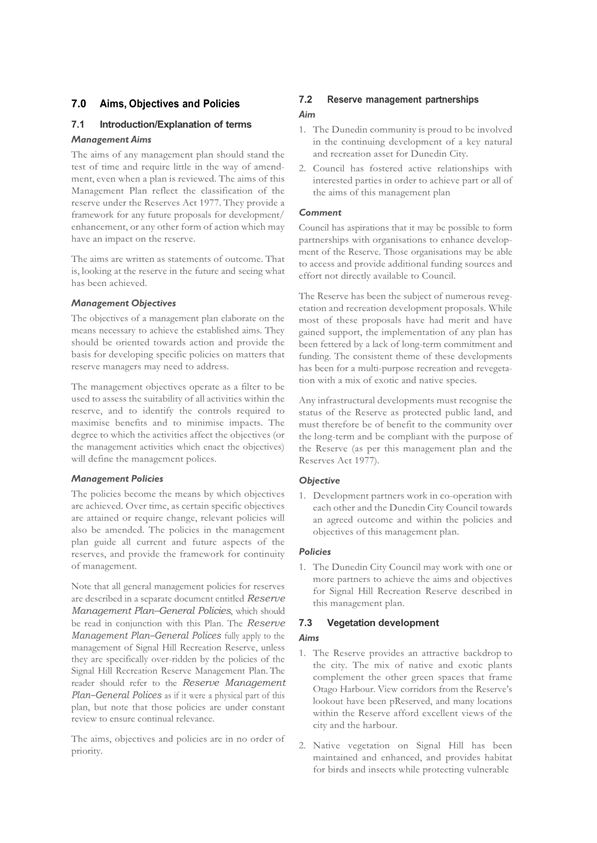









|

|
Strategy, Planning & Engagement
Committee
13 February 2024
|
Dunedin Town Belt Reserve Management Plan Notice of Intent
Department: Parks and Recreation
EXECUTIVE SUMMARY
1 The
Dunedin Town Belt Reserve Management Plan (Town Belt Management Plan) was
adopted in 2007, it is now to be reviewed. This report seeks to commence the
public consultation process required by s41(5) of the Reserves Act 1977 (Act),
to enable the review of the Town Belt Management Plan.
2 The
Town Belt Management Plan sets objectives and policies for the Town Belt
Reserve. The Town Belt is one large green space reserve surrounding the central
Dunedin urban area. It is made up of many specific areas within the reserve. It
is a requirement under the Act to consult with the public when a reserve
management plan is being created or reviewed.
3 The
Statement of Proposal has been prepared, detailing the proposed review of the
Town Belt Management Plan and proposed public engagement. This Statement of
Proposal and additional documents; the ‘Media Release for Dunedin Town
Belt Reserve Management Plan’, the ‘Feedback Form Town Belt Reserve
Management Plan’ and the current Dunedin Town Belt Reserve Management
Plan have been attached to this report (see Attachments A).
RECOMMENDATIONS
That the Committee:
a) Approves the Statement
of Proposal and the high-level Stage 1 engagement question topics for the Town
Belt Management Plan.
b) Authorises the
commencement of the public consultation process required by s41(5) of the Act
as outlines in Option One below.
BACKGROUND
4 The
Town Belt Management Plan was adopted in January 2007. The Act requires an
administering authority keep reserve management plans under continuous review
pursuant to s41(4). Therefore, a review is required to update the current Town
Belt Management Plan.
5 Council
prepares individual management plants for specific reserves according to
identified priorities and unique or special values. The Town Belt Management
Plan deals with the entire Town Belt Reserve Area totalling 202 hectares of
forest, sports fields, tracks, clubs and facilities, and playgrounds which
serve the adjacent residential communities and central Dunedin urban area.
6 These
areas within this large reserve area have similar management requirements such
as leasing arrangements, providing access to specific reserve areas, indigenous
biodiversity management and facilitation of education programmes.
7 Management
plans must be read in conjunction with the Act, which is the primary statutory
document outlining procedures for activities allowed under a management plan.
Other relevant Acts should also be considered when determining appropriate
reserve management.
8 The
Act requires that a reserve management plan:
a) Ensures
that the principles that apply to a reserve of the relevant classification in
the Reserves Act are complied with.
b) Provides
for and ensures the use, enjoyment, maintenance, protection, and preservation
of the reserve as the case may require, and, to the extent that the
administering body’s resources may permit.
c)
Provides for development of the reserve (as appropriate for the purpose for
which the reserve is classified).
DISCUSSION
9 The
Town Belt Management Plan provides administration, use, development and change
policies relevant to the entire Town Belt Reserve. The current plan also
focusses on specific individual reserve areas within the Town Belt and any
specific history, use, or development issues the reserve may have. Review of
the current areas and potential inclusion of others would make up part of the
Management Plan Review. The areas within the current plan are:
· Arthur
Street Cemetery
· Belleknowes
· Cosy
Dell
· Gardens
Ground
· Jubilee
Park
· Littlebourne
Ground
· Moana
Pool
· Montecillo
Ground
· Mornington
Park
· Northern
Cemetery
· Ōpoho Park
· Prospect
Park
· Roberts
Park
· Southern
Cemetery
· The
Oval
· Unity
Park
· Woodhaugh
Gardens
The map below
shows the extents of the Dunedin Town Belt. The area in yellow indicates the
Dunedin Botanic Gardens, which while part of the Dunedin Town Belt, has its own
reserve management plan.

10 A
comprehensive review would ensure that the Town Belt Management Plan accurately
reflects best practices, updated technology, and identification of constraints
and issues on the reserve. The Town Belt Management Plan has the following
shortcomings:
a) It
does not adequately recognise Te Rūnanga o Ōtākou and Kāti
Huirapa Rūnaka ki Puketeraki as mana whenua and it does not incorporate
mana whenua history and cultural values.
b) It does not
adequately address climate change adaptability, net-carbon-zero measures and
sustainability.
c) The
current Town Belt Management Plan, while discussing ecological values and
providing objectives and policies for biodiversity within the Town Belt is not
reflective of the National Policy Statement for Indigenous Biodiversity.
d) It does not
accurately align with current objectives and policies established and being
developed by the wider DCC planning teams. The proposed Future Development
Strategy (FDS) has outlined that it will focus on protecting and enhancing
Dunedin’s biodiversity, including considering how to develop “green
and blue” networks. Green networks refer to areas containing or
supporting the movement of indigenous species, while blue networks refer to our
waterways. Both networks help maintain and enhance our city’s
biodiversity and contribute to clean air and water. Green and blue networks
also function to provide spaces for the public to access nature and undertake
recreational activities, which helps boost the health and wellbeing of our
residents. As the Town Belt is the largest “green and blue network”
in the urban centre, these policies being created by the FDS should be
reflected within the Town Belt Management Plan.
e) The current
Town Belt Management Plan does not contain new 2GP classifications of the areas
as a “Urban Biodiversity Mapped Area” and any context or discussion
about how this will affect the management of the reserve.
f) Feedback
received through public engagement (for example 2018 Te Ao Tūroa,
Dunedin’s Environment Strategy Town Belt Boost engagement),
directly from members of public, and community groups such as the Dunedin
Amenities Society and Town Belt Kaitiaki who promote the protection of the Town
Belt, increasingly raises issues that are not addressed or provided for in the
current Town Belt Management Plan.
g) New
and emerging issues in recent years include long term parking in reserves, the
provision of community gardens and the planting for fruit trees in reserves for
food and network resilience. This results in ad hoc and sometimes inconsistent
management decisions being made.
11 Engagement
is undertaken in two stages. In Stage 1, initial community engagement is
undertaken to inform the development of the draft reserve management plan. In
Stage 2, submitters would be able to provide feedback on the draft reserve
management plan. The Stage 2 feedback is considered by the Hearings Committee
and may be assimilated into the final plan.
12 The costs
associated with undertaking this review will be met with the current Parks
Planning budgets.
a) The
review and preparation of the draft will be undertaken by DCC staff.
b) Production
of marketing information is being prepared by the DCC Marketing and Design Team.
c) Engagement
events will utilise public facilities. It is not anticipated that engagement
numbers will require the rental of large spaces.
OPTIONS
Option One – Recommended Option
13 That the
Council approves the proposal to publicly notify its intention to prepare a
Reserve Management Plan for the Town Belt and initiates the Stage One
engagement process, as required by s41(5) of the Act.
Advantages
· Staff
can begin the public consultation process, as required by s41(5) of the Act,
allowing interested persons and organisations to provide written suggestions on
the proposal.
Disadvantages
· There
are associated costs for Council involved in the public consultation process
required by s41(5) of the Act.
Option Two – Status Quo
14 That
Council does not support the proposal to publicly notify its intention to
prepare a Reserve Management Plan for the Dunedin Town Belt Reserve and does
not initiate a public consultation process.
Advantages
· Costs
associated with the public notification, and subsequent preparation of a
Reserve Management Plan are not required.
Disadvantages
· The
Town Belt Reserve would continue to be managed under the Town Belt Reserve
Management Plan 2006 and the General Policies Reserve Management Plan. This
would result in policies that are not relevant and development of the reserves
that does not reflect community aspirations.
· The
Town Belt Management Plan would not be updated to reflect current DCC policy on
sustainability, adaptation, net zero values or biodiversity values.
· Issues
that have been identified through formal engagement activities, and specific
feedback from local community groups would not be addressed.
NEXT STEPS
15 If
approved, staff will follow the public consultation process required by s41(5)
of the Act.
Signatories
|
Author:
|
Heath Ellis - Acting Group Manager Parks and Recreation
|
|
Authoriser:
|
Jeanette Wikaira - General Manager Arts, Culture and
Recreation
|
Attachments
|
|
Title
|
Page
|
|
⇩a
|
Statement of Proposal
|
117
|
|
SUMMARY OF CONSIDERATIONS
|
|
Fit with purpose of Local Government
This decision enables democratic local
decision making and action by, and on behalf of communities; and promotes the
social and environmental well-being of communities in the present and for the
future.
|
|
Fit with strategic framework
|
|
Contributes
|
Detracts
|
Not applicable
|
|
Social Wellbeing Strategy
|
✔
|
☐
|
☐
|
|
Economic Development Strategy
|
☐
|
☐
|
✔
|
|
Environment Strategy
|
✔
|
☐
|
☐
|
|
Arts and Culture Strategy
|
☐
|
☐
|
✔
|
|
3 Waters Strategy
|
☐
|
☐
|
✔
|
|
Spatial Plan
|
✔
|
☐
|
☐
|
|
Integrated Transport Strategy
|
✔
|
☐
|
☐
|
|
Parks and Recreation Strategy
|
✔
|
☐
|
☐
|
|
Other strategic projects/policies/plans
|
✔
|
☐
|
☐
|
The city’s parks and reserves contribute to the
wellbeing of the community. Reserve management plans provide
opportunities to work with other departments to consider linkages and
connections in terms of movement and association. The public
consultation process for preparing a new reserve management plan enables the
community to provide input into the management of reserves. Reserve
management plans are also an opportunity to evaluate biodiversity and
ecological values and support improvements to the environment.
|
|
Māori Impact Statement
The Town Belt has been identified as having cultural
importance to mana whenua and mana whenua will be involved from the outset in
the development of this management plan. In the first instance staff will
ensure that engagement with Te Rūnanga o Ōtākou and Kāti
Huirapa Rūnaka ki Puketeraki occurs through Aukaha Ltd.
|
|
Sustainability
Sustainability and the Council’s Zero Carbon Policy
is to be considered through the process of this project and will inform the
management and operation of the reserve.
|
|
LTP/Annual Plan / Financial Strategy /Infrastructure
Strategy
There are no implications on the plans and strategies for
preparing and engaging on reserve management plans.
|
|
Financial considerations
Community engagement on the draft and any revisions or
amendments to it prior to it being adopted can be resourced from within the
existing Parks and Recreation Services operating budget for 2023/24 year.
|
|
Significance
The Town Belt Management Plan is considered low in terms
of the Council’s Significance and Engagement Policy.
|
|
Engagement – external
The Reserves Act 1977 requires DCC to consult with the
public when a reserve management plan is being created or reviewed.
|
|
Engagement - internal
The DCC Legal team has provided guidance on this report,
and the proposed process required under the Reserves Act 1977 and the Reserve
Management Plan review schedule. Internal engagement will be undertaken with
various departments as part of Stage 1 engagement. This will continue in the
preparation of the first draft and final review of the reserve management
plan.
|
|
Risks: Legal / Health and Safety etc.
There are no known risks.
|
|
Conflict of Interest
There are no known conflicts of interest.
|
|
Community Boards
The Dunedin Town Belt is not located within any
administrative areas of the six Community boards. It is not considered that
there is any specific requirement for these Community Boards, however it is
noted that the Dunedin Town Belt Reserve is a key amenity for the entire city
and all residents, including those in Community Board areas. They will
therefore be welcome to participate in the engagement process.
|
|

|
Strategy, Planning & Engagement
Committee
13 February 2024
|

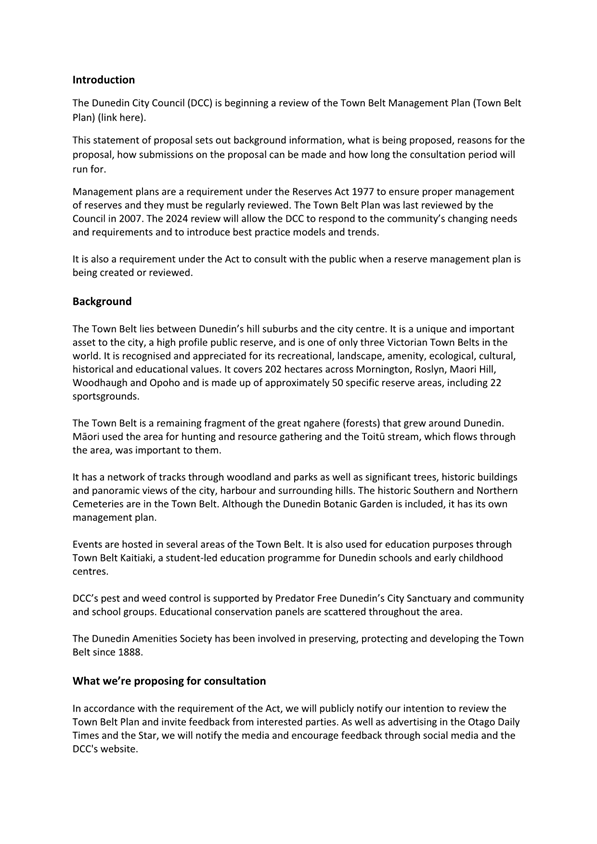























































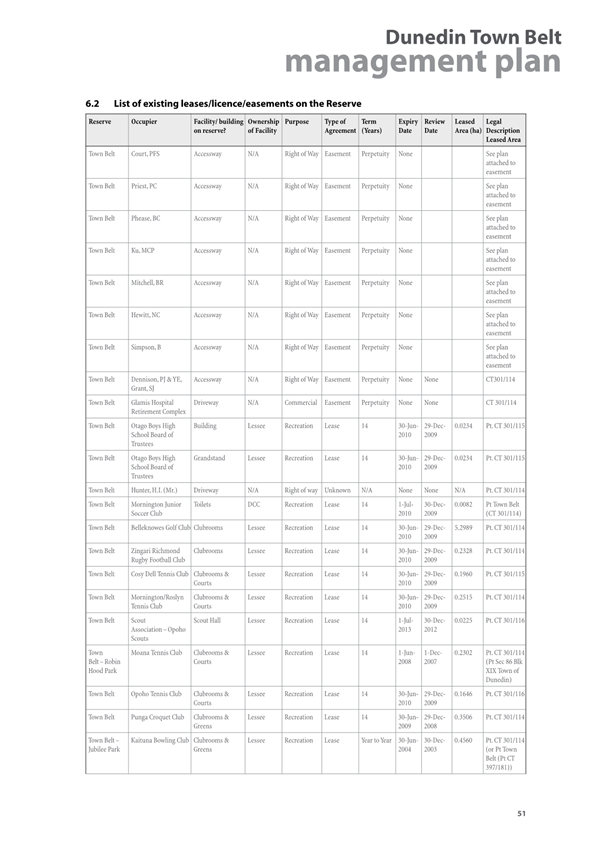





|

|
Strategy, Planning & Engagement
Committee
13 February 2024
|
Otago Harbour Reserves Management Plan Review - Notice of
Intent
Department: Parks and Recreation
EXECUTIVE SUMMARY
1 The
Otago Harbour Reserves Management Plan (Harbour Management Plan) is a plan that
sets objectives and policies for the reserves where the principal purpose is to
provide access to, or encourage use of, the harbour. The current Harbour
Management Plan was adopted in 2006 and it is now to be reviewed. This report
seeks to commence the public consultation process required by s41(5) of the
Reserves Act 1977 (Act), to enable the review of the Harbour Management Plan.
2 The
Statement of Proposal has been prepared, detailing the proposed review of the Harbour
Management Plan and proposed public engagement. This Statement of Proposal and
additional documents; the ‘Media Release for Otago Harbour Reserves
Management Plan’, the ‘Feedback Form Otago Harbour Reserves
Management Plan’ and the current Otago Harbour Reserves and Otago Boat
Harbour Reserve Management Plans have been attached to this report (see
Attachment A).
RECOMMENDATIONS
That the Committee:
a) Approves the Statement
of Proposal and the high-level Stage 1 engagement question topics for the Otago
Harbour Reserves Management Plan.
b) Authorises the
commencement of the public consultation process required by s41(5) of the Act
as outlines in Option One below.
BACKGROUND
3 The
Harbour Management Plan was adopted in July 2006. The Act requires an
administering authority keep reserve management plans under continuous review
pursuant to s41(4). Therefore, a review is required to update the current
Harbour Management Plan.
4 Council
prepares individual management plans for specific reserves according to
identified priorities and unique or special values. The Harbour Management Plan
deals with the reserves directly adjacent to the foreshore edge managed by DCC
Parks and Recreation.
5 These
reserves have similar management requirements such as leasing arrangements with
clubs and facilities, providing access to the water and requiring resilience
planning for the changing coastal environment.
6 Collectively
located along the harbour edge, these reserves also share similar cultural
values important to mana whenua. Therefore, it is appropriate to create a
management plan as an “omnibus” for this group of harbour reserves.
7 Management
plans must be read in conjunction with the Act, which is the primary statutory
document outlining procedures for activities allowed under a management plan.
Other relevant Acts should also be considered when determining appropriate
reserve management.
8 The
Act requires that a reserve management plan:
a) Ensures
that the principles that apply to a reserve of the relevant classification in
the Reserves Act are complied with.
b) Provides
for and ensures the use, enjoyment, maintenance, protection, and preservation
of the reserve as the case may require, and, to the extent that the
administering body’s resources may permit.
c)
Provides for development of the reserve (as appropriate for the purpose for
which the reserve is classified).
DISCUSSION
9 The
Harbour Management Plan provides administration, use, development and change
policies relevant to the Otago Harbour Reserves. The specific individual
reserves incorporated into the current plan include:
· Deborah
Bay Dinghy Ramp and Marina, and the Green Reserve.
· Careys
Bay Jetty and Ramp
· Port
Chalmers Recreation Reserve (Back Beach)
· Roseneath
Esplanade Reserve
· Kitchener
Street Reserve
· Andersons
Bay Inlet and Bayfield Jetty and Ramp
· Vauxhall
Reserve
· Glenfalloch
Jetty
· Broad
Bay Reserve
· Macandrew
Bay Reserve
· Wellers
Rock Jetty
· Te
Rauone Recreation and Esplanade Reserve (Te Rauone Beach Domain)
The map below shows the extent of the Otago Harbour
Reserves.

10 A
comprehensive review would ensure that the Harbour Management Plan is up to
date and relevant regarding issues, opportunities, technology, and best
practices. Currently it is considered that the current Harbour Management Plan
has the following shortcomings:
a) The
current Harbour Management Plan does not adequately recognise mana whenua
partners. There is no provision for recognising mana whenua cultural identity,
values or narratives. The Otago Harbour is of high cultural significance to Te Rūnanga
o Ōtakau and Kāti Huirapa Rūnaka ki Puketeraki. The area is
where Ōtākou Marae is located, and the Otago Harbour has a pivotal
role in the well-being of Ōtākou people. It is a bountiful provider
of kaimoana and is a pathway to fishing grounds beyond. “Traditionally it
was the mode for other hapū to visit, and in today's world it is the
lifeline to the international trade that benefits the region. The ebb and flow
of the harbour tides is a valued certainty in a world of change, a taoka to be
treasured and protected for the benefit of current and future
generations” (Second Generation Plan, 14.1.4.1). Staff will facilitate
conversations with mana whenua to adequately represent cultural values within
this reserve management plan.
b) The current
Harbour Reserve Management Plan does not adequately address climate change
adaptability, net-carbon-zero measures, and sustainability.
c) The
Otago Boat Harbour Recreation Reserve is held in its own Reserve Management
Plan, this was created later than the existing Harbour Management Plan to
finalise issues around leases specific to this reserve. Amalgamating this
plan with the Harbour Reserve Management Plan has been identified as
desirable. It is therefore considered through this review that the Boat
Harbour Reserve Management Plan will be retired, and the Harbour Management
Plan will include this reserve within its plan.
d) The current
Harbour Management Plan does not include the Ravensbourne Walkway and Cycleway
or other potential harbour adjacent reserves which have similar values as the
existing set of reserves in the Harbour Management Plan. A review of these
reserves will be undertaken, and they will be included into the omnibus plan if
practicable, to create more cohesion and consistency for the Otago Harbour Reserves.
11 A
‘joint strategic vision’ for the Otago Harbour will be developed by
the Dunedin City Council and Otago Regional Council, together with mana whenua
and stakeholders such as the Department of Conservation. The project will be
led by the Otago Regional Council (ORC).
12 This
updated Harbour Management Plan will enable the ‘joint strategic
vision’ and the DCC’s role within the realms of our reserves
adjacent to the harbour. Commencement of the project is being undertaken by the
ORC presently, and therefore the proposed timing of the Harbour Management Plan
review is beneficial, to ensure alignment between the plan and this wider
‘joint strategic vision’.
13 Engagement
is undertaken in two stages. In Stage 1, initial community engagement is
undertaken to inform the development of the draft reserve management plan. In
Stage 2, submitters would be able to provide feedback on the draft reserve
management plan. The Stage 2 feedback is considered by the Hearings Committee
and may be assimilated into the final plan.
14 The costs
associated with undertaking this review will be met with the current Parks
Planning budgets.
a) The
review and preparation of the draft will be undertaken by DCC staff.
b) Production
of marketing information is being prepared by the DCC Marketing and Design
Team.
c) Engagement
events will utilise public facilities. It is not anticipated that engagement
numbers will require the rental of large spaces.
OPTIONS
Option One – Recommended Option
15 That the
Council approves the proposal to publicly notify its intention to prepare a
Reserve Management Plan for the Otago Harbour reserves and initiates the Stage
1 engagement process, as required by s41(5) of the Act.
Advantages
· Staff
can begin the public consultation process, as required by s41(5) of the Act,
allowing interested persons and organisations to provide written suggestions on
the proposal.
Disadvantages
· There
are associated costs for Council involved in the public consultation process
required by s41(5) of the Act.
Option Two – Status Quo
16 That
Council does not support the proposal to publicly notify its intention to
prepare a Reserve Management Plan for the Otago Harbour reserves and does not
initiate a public consultation process.
Advantages
· Costs
associated with the public notification, and subsequent preparation of a
Reserve Management Plan are not required.
Disadvantages
· The
reserves listed within the current Harbour Management Plan would continue to be
managed under the Otago Harbour Reserves Management Plan 2006, while the
unlisted reserves would be managed under the General Policies Reserve
Management Plan. This would result in policies that are not site specific and
planning and development of harbour reserves that is disjointed.
· The
Harbour Management Plan would not be updated to reflect current policy on
sustainability, adaptation and net zero values.
· The
Harbour Management Plan would not include values of our mana whenua partners,
or adequate cultural and historical context which is a current shortcoming.
NEXT STEPS
17 If
approved, staff will follow the public consultation process required by s41(5)
of the Act.
Signatories
|
Author:
|
Heath Ellis - Acting Group Manager Parks and Recreation
|
|
Authoriser:
|
Jeanette Wikaira - General Manager Arts, Culture and
Recreation
|
Attachments
|
|
Title
|
Page
|
|
⇩a
|
Statement of Proposal
|
187
|
|
SUMMARY OF CONSIDERATIONS
|
|
Fit with purpose of Local Government
This decision enables democratic local
decision making and action by, and on behalf of communities; and promotes the
social and environmental well-being of communities in the present and for the
future.
|
|
Fit with strategic framework
|
|
Contributes
|
Detracts
|
Not applicable
|
|
Social Wellbeing Strategy
|
✔
|
☐
|
☐
|
|
Economic Development Strategy
|
☐
|
☐
|
✔
|
|
Environment Strategy
|
✔
|
☐
|
☐
|
|
Arts and Culture Strategy
|
☐
|
☐
|
✔
|
|
3 Waters Strategy
|
☐
|
☐
|
✔
|
|
Spatial Plan
|
✔
|
☐
|
☐
|
|
Integrated Transport Strategy
|
✔
|
☐
|
☐
|
|
Parks and Recreation Strategy
|
✔
|
☐
|
☐
|
|
Other strategic projects/policies/plans
|
✔
|
☐
|
☐
|
The city’s parks and reserves contribute to the
wellbeing of the community. Reserve management plans provide
opportunities to work with other departments to consider linkages and
connections in terms of movement and association. The public
consultation process for preparing a new reserve management plan enables the
community to provide input into the management of reserves. Reserve
management plans are also an opportunity to evaluate biodiversity and
ecological values and support improvements to the environment.
|
|
Māori Impact Statement
The
Otago Harbour has been identified as having high cultural significance to
mana whenua and mana whenua will be involved from the outset as a partner in
the development of this management plan. In the first instance staff will
ensure that engagement with Te Rūnanga o Ōtākou and Kāti Huirapa Rūnaka ki Puketeraki occurs through Aukaha Ltd.
|
|
Sustainability
Sustainability and the Council’s Zero Carbon Policy
is to be considered through the process of this project and will inform the
management and operation of the reserve.
|
|
LTP/Annual Plan / Financial Strategy /Infrastructure
Strategy
There are no implications on the plans and strategies for
preparing and engaging on reserve management plans.
|
|
Financial considerations
Community engagement on the draft and any revisions or
amendments to it prior to it being adopted can be resourced from within the
existing Parks and Recreation Services operating budget for 2023/24 year.
|
|
Significance
The Harbour Management Plan is considered low in terms of
the Council’s Significance and Engagement Policy.
|
|
Engagement – external
The Reserves Act 1977 requires DCC to consult with the
public when a reserve management plan is being created or reviewed.
|
|
Engagement - internal
The DCC Legal team has provided guidance on this report,
and the proposed process required under the Reserves Act 1977 and the Reserve
Management Plan review schedule. Internal engagement will be undertaken with
various departments as part of Stage 1 engagement. This will continue in the
preparation of the first draft and final review of the reserve management
plan.
|
|
Risks: Legal / Health and Safety etc.
There are no known risks.
|
|
Conflict of Interest
There are no known conflicts of interest.
|
|
Community Boards
West
Harbour Community Board and the Otago Peninsula Community Board will have a
specific interest in the policies which will affect the management of the
Harbour Reserves within their administrative areas. Both Community Boards
will be invited to provide feedback and input during review and drafting of
the Harbour Management Plan.
|
|

|
Strategy, Planning & Engagement
Committee
13 February 2024
|




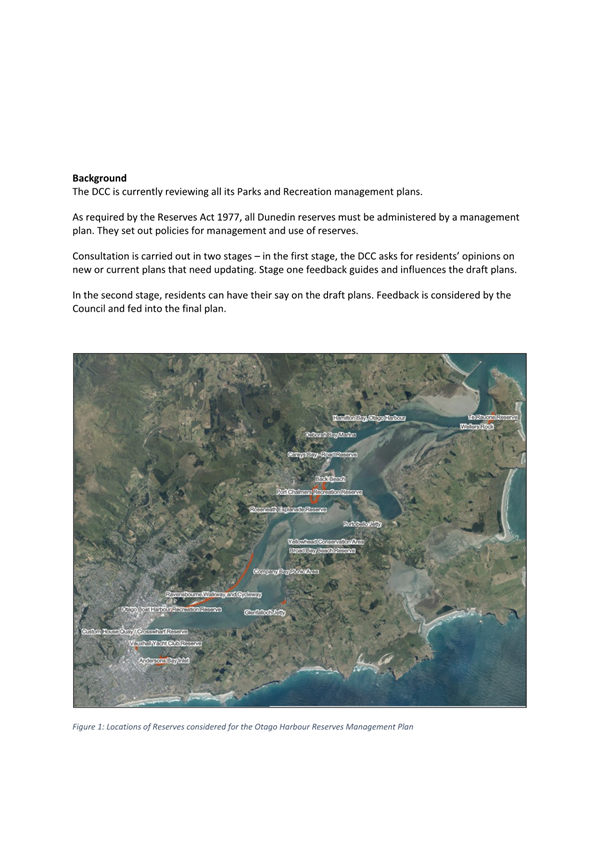
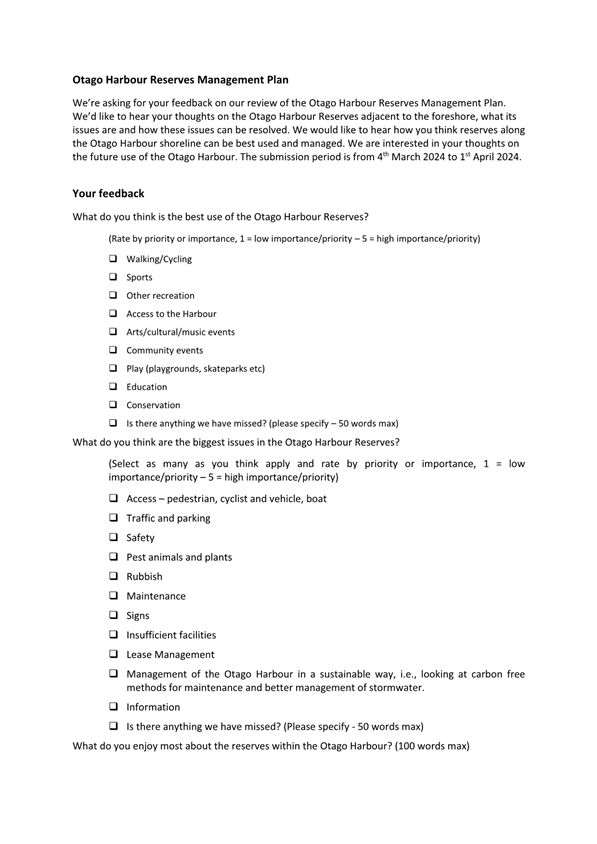


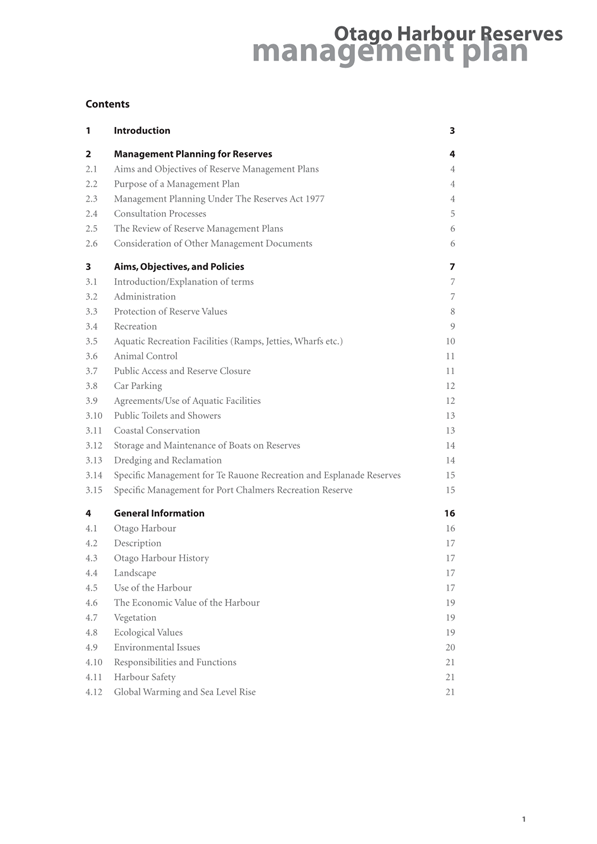
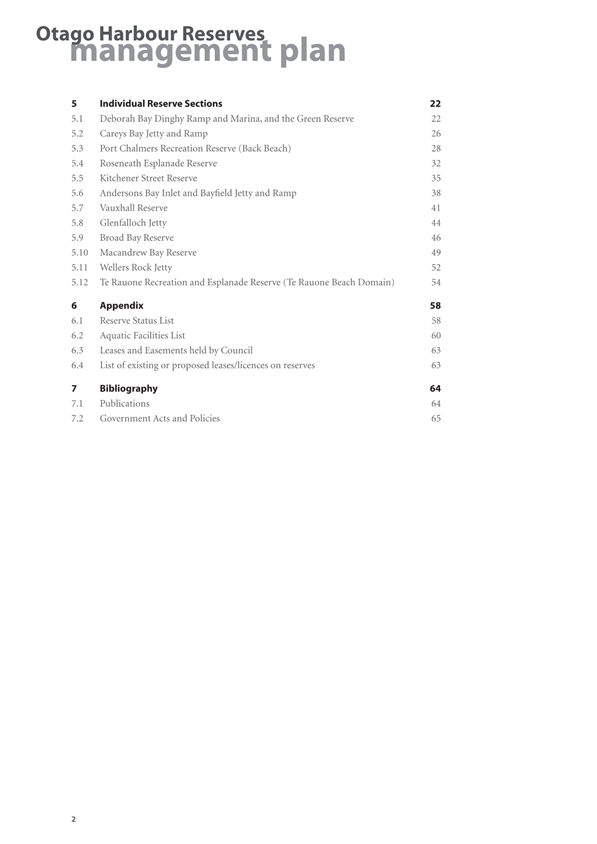
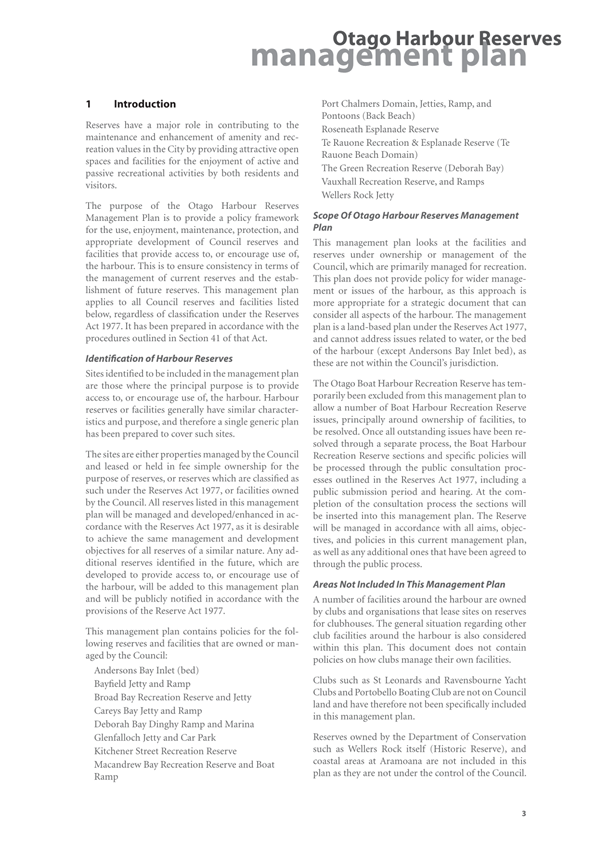
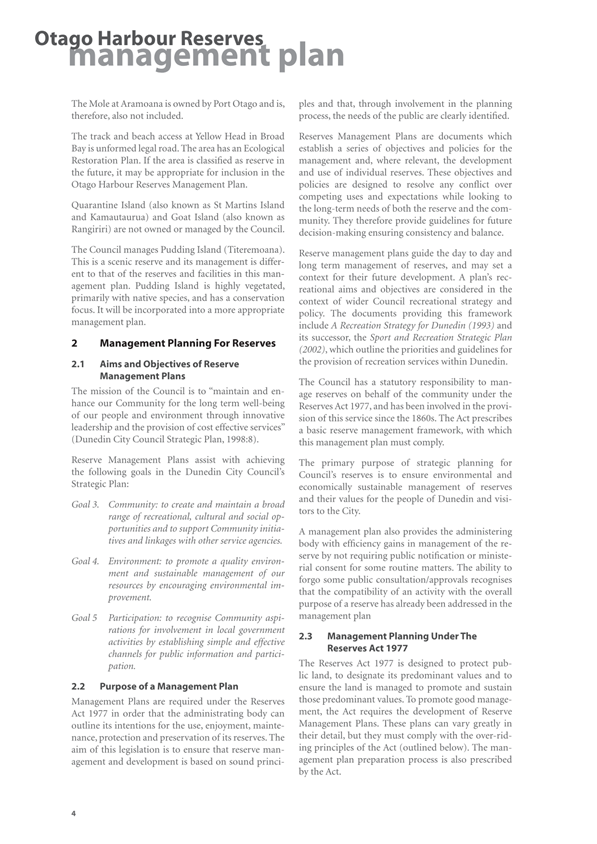


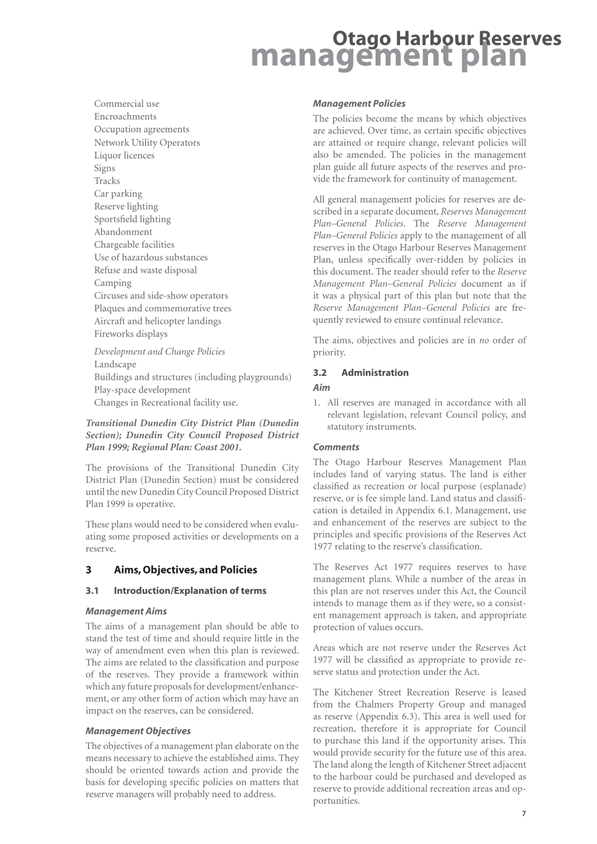
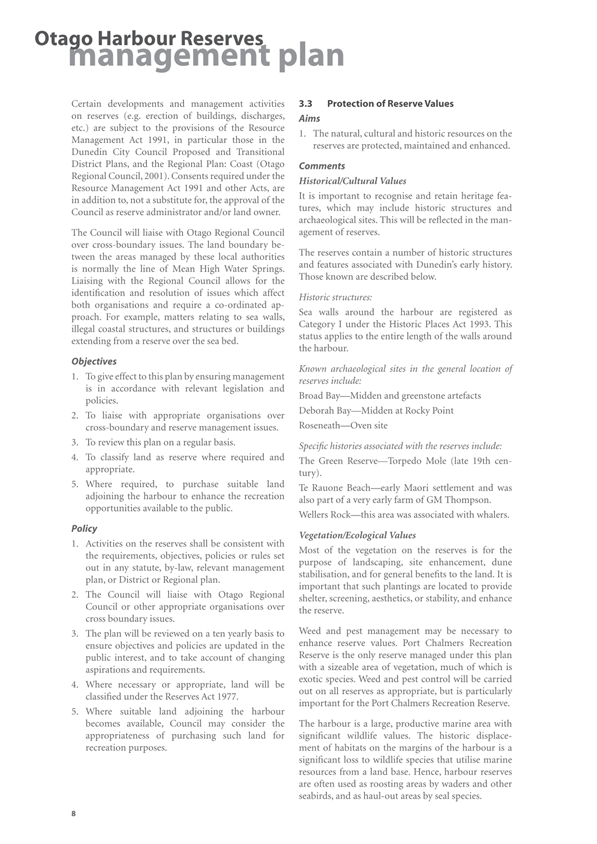
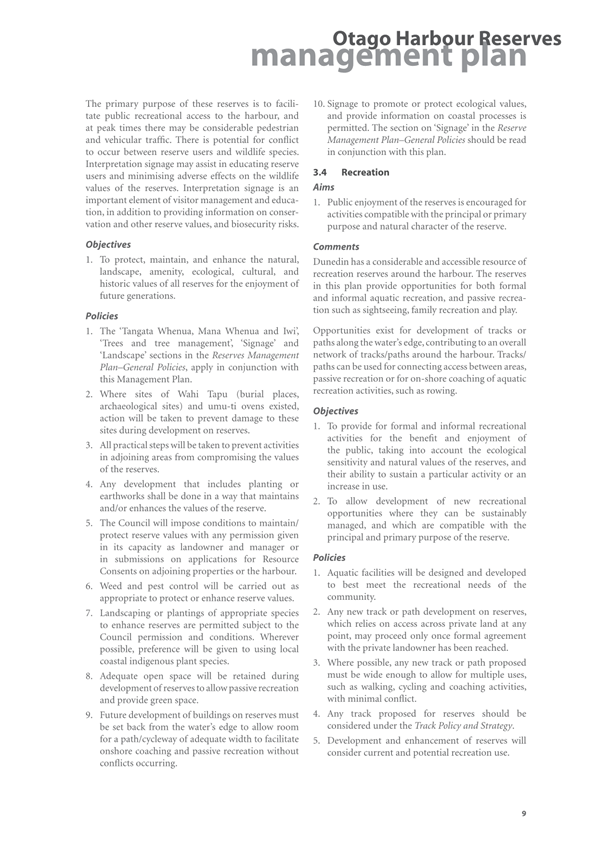

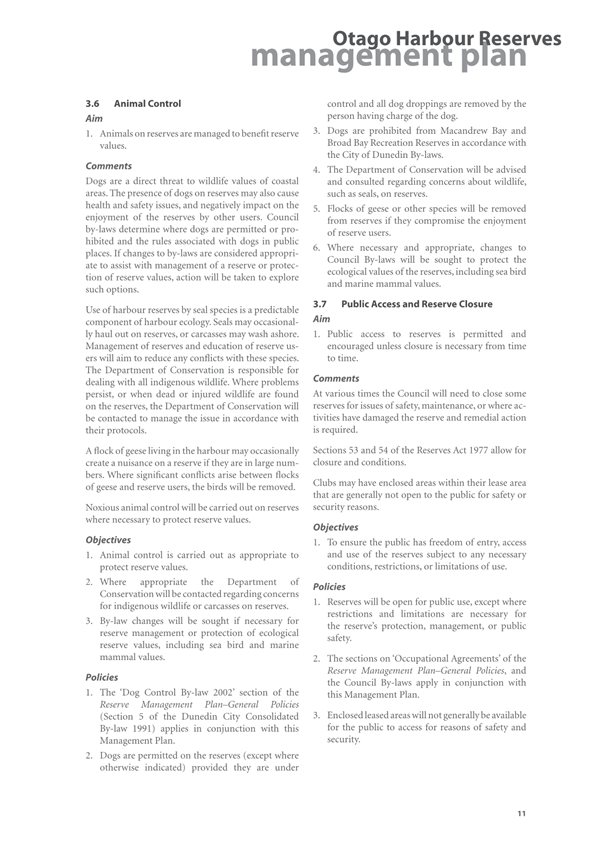
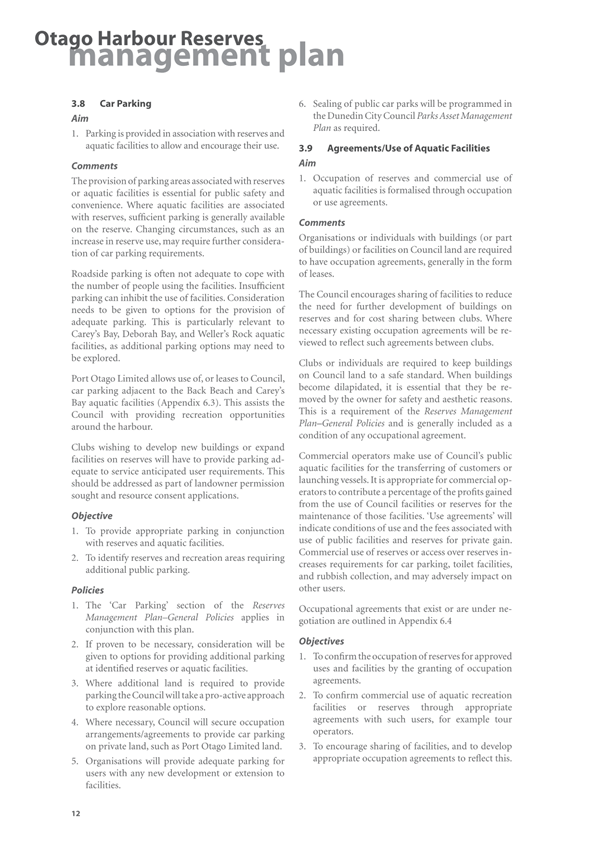
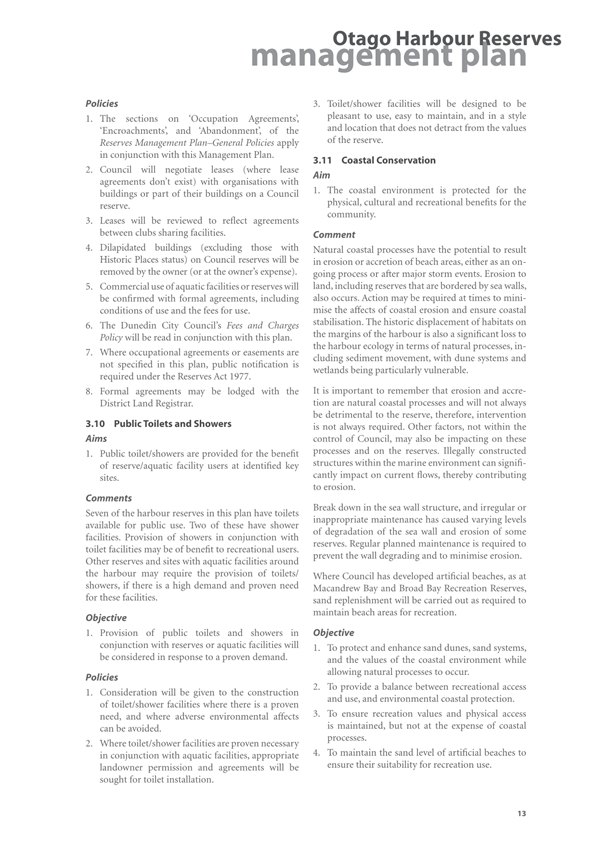
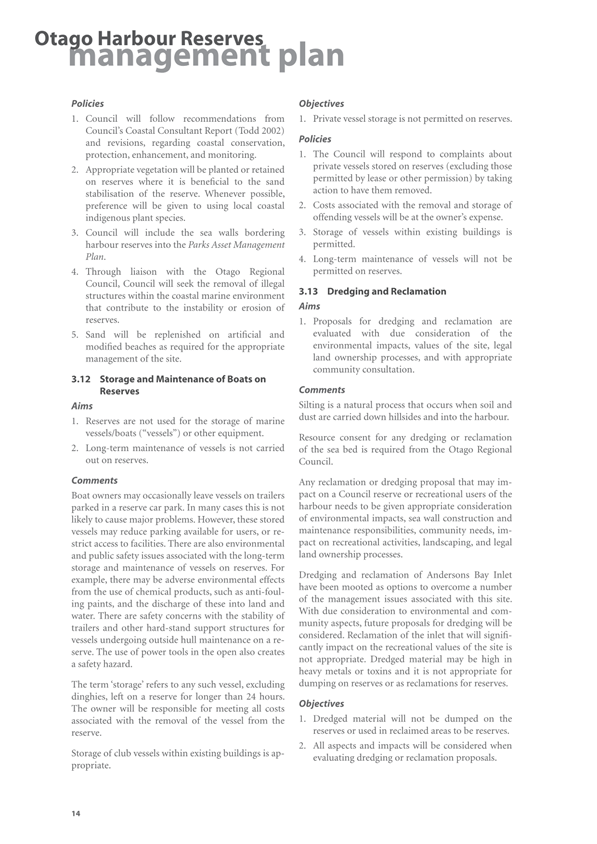
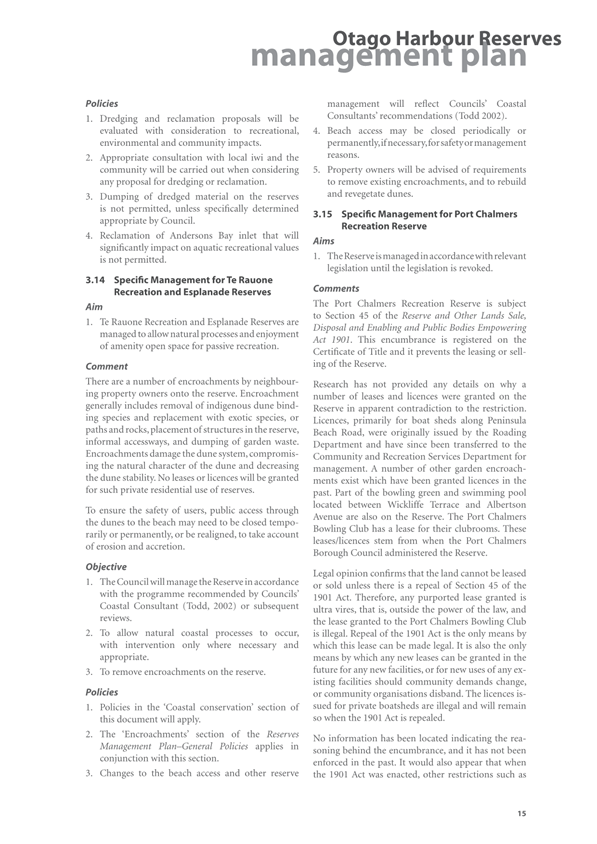
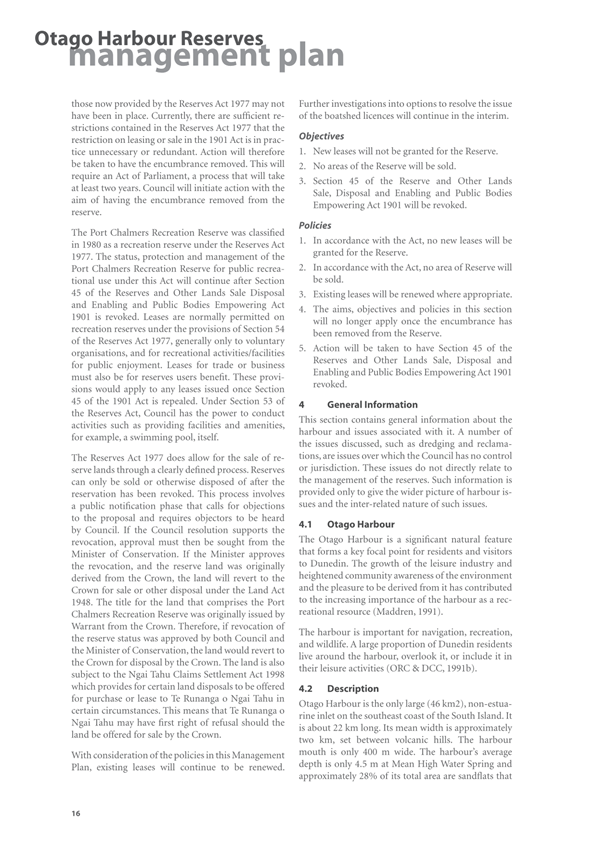
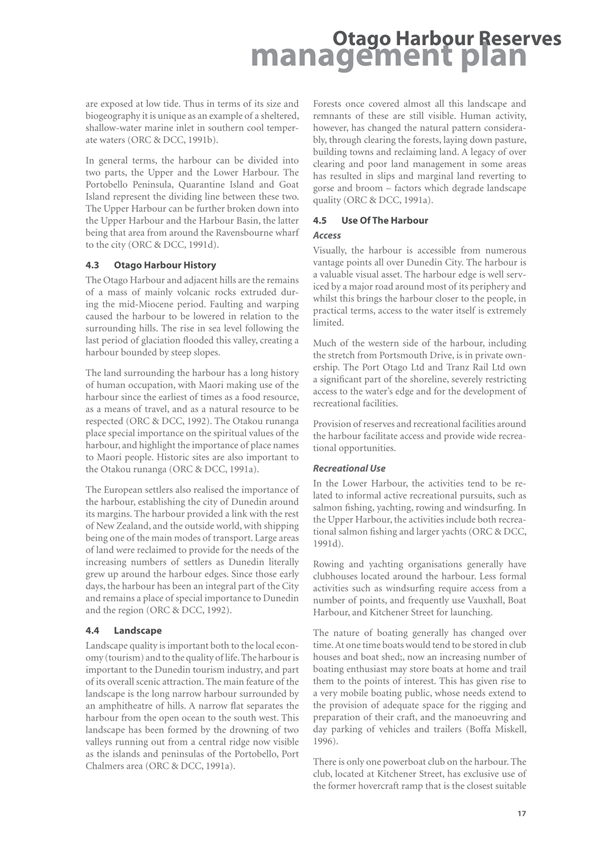
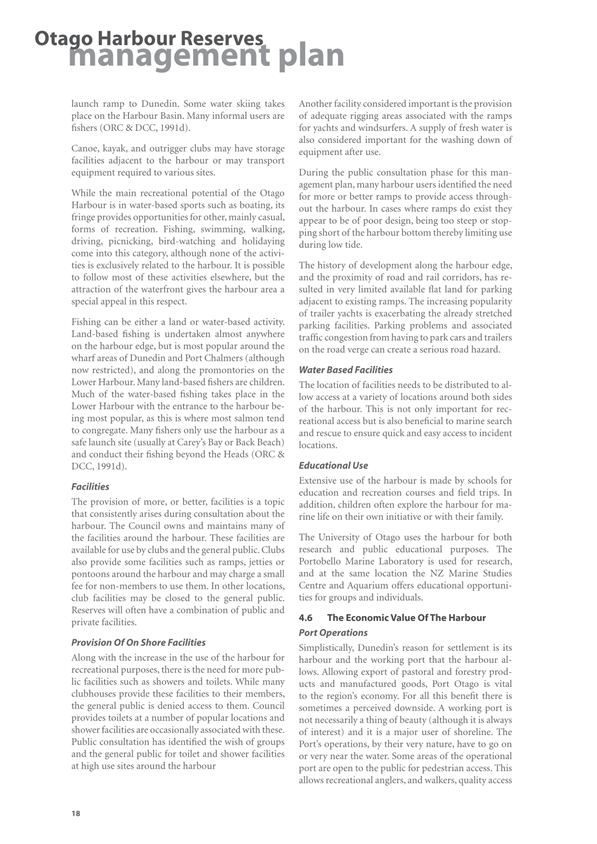
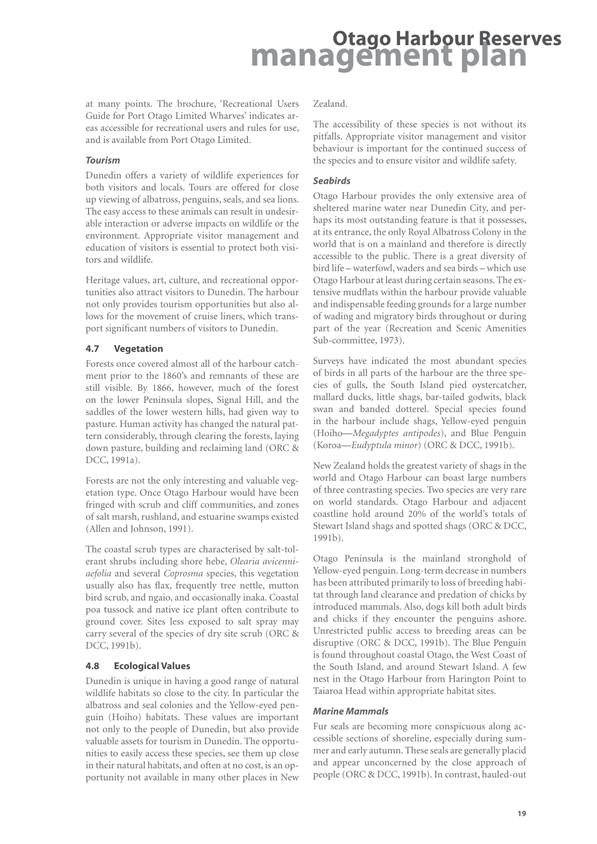

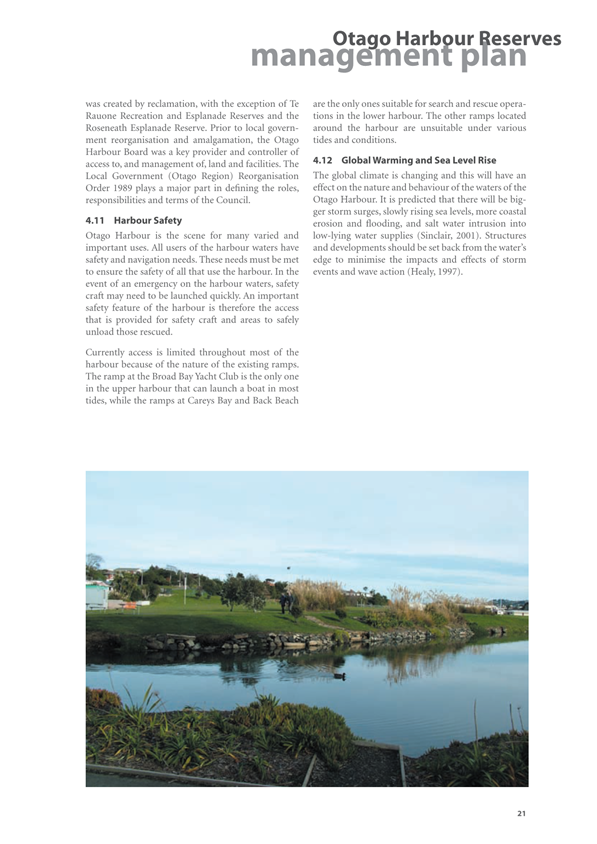
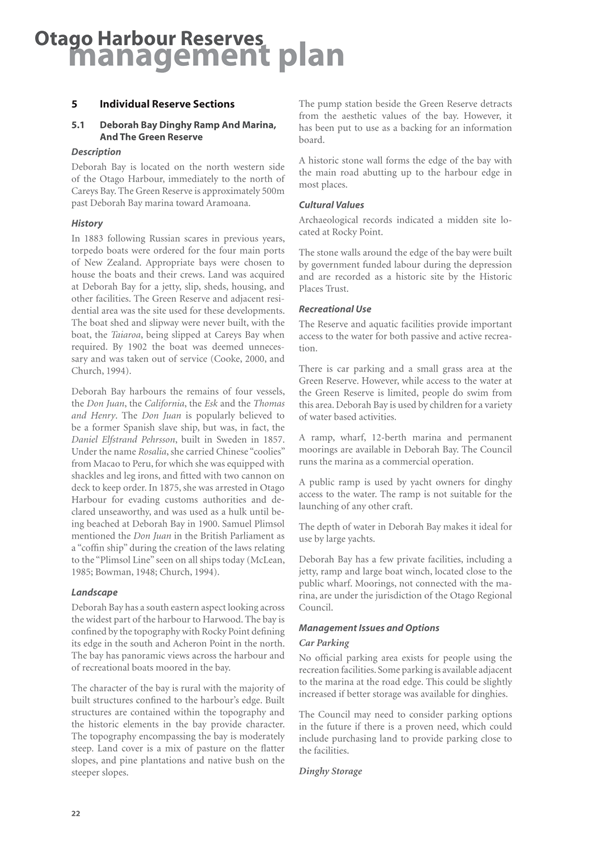
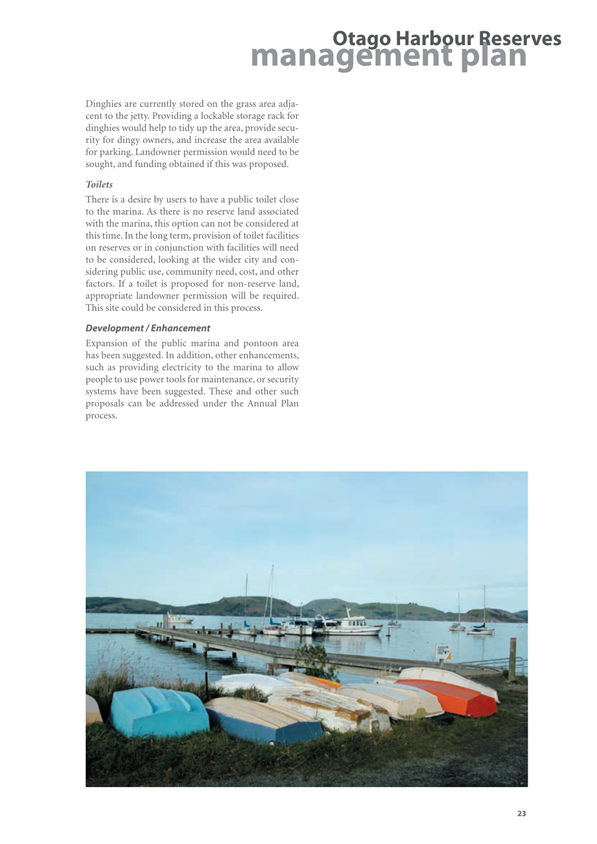
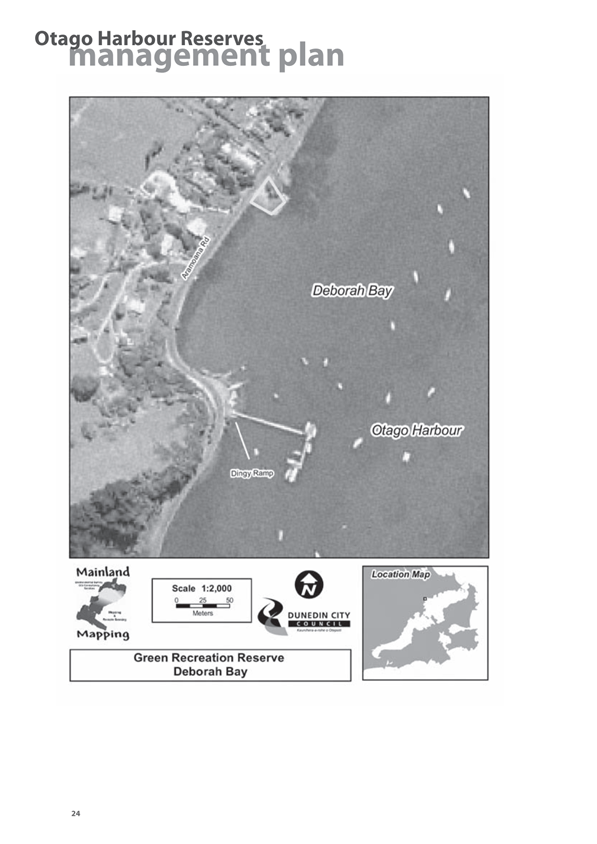
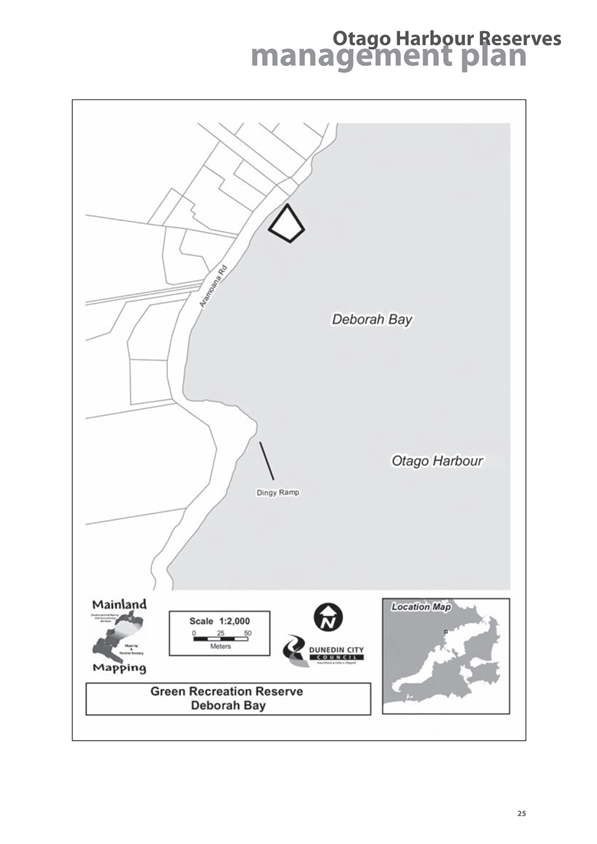
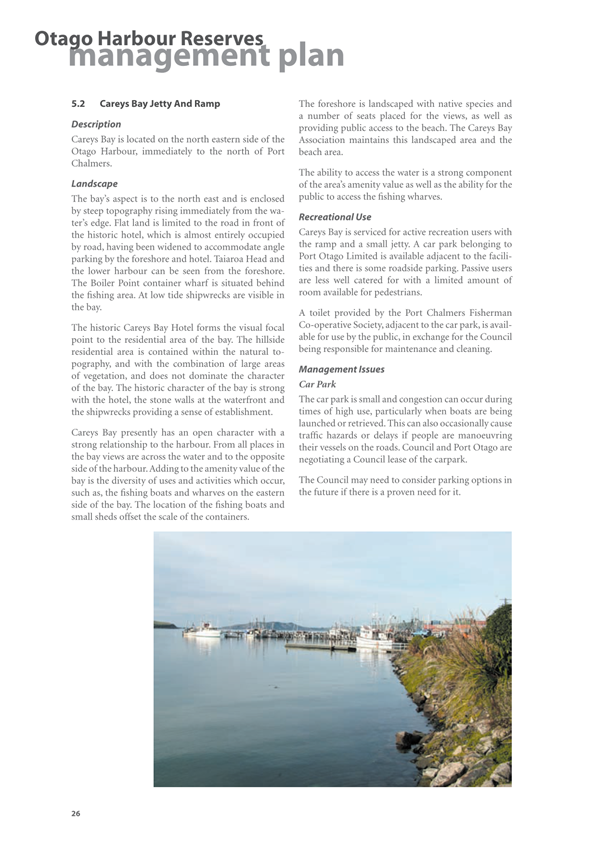
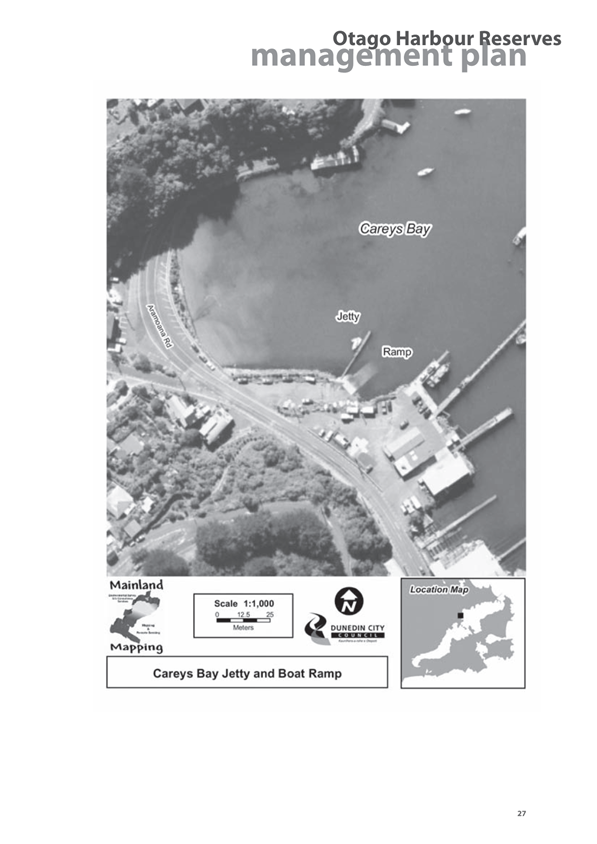
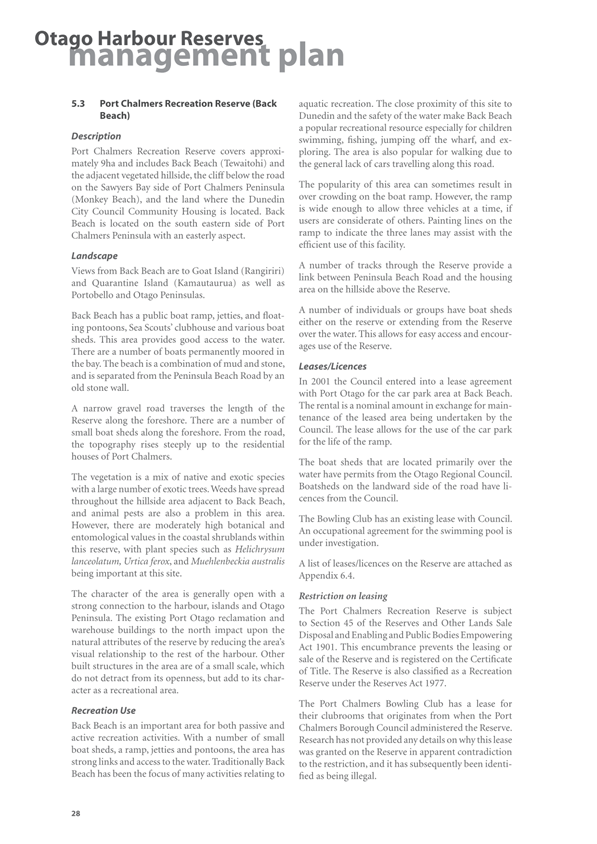
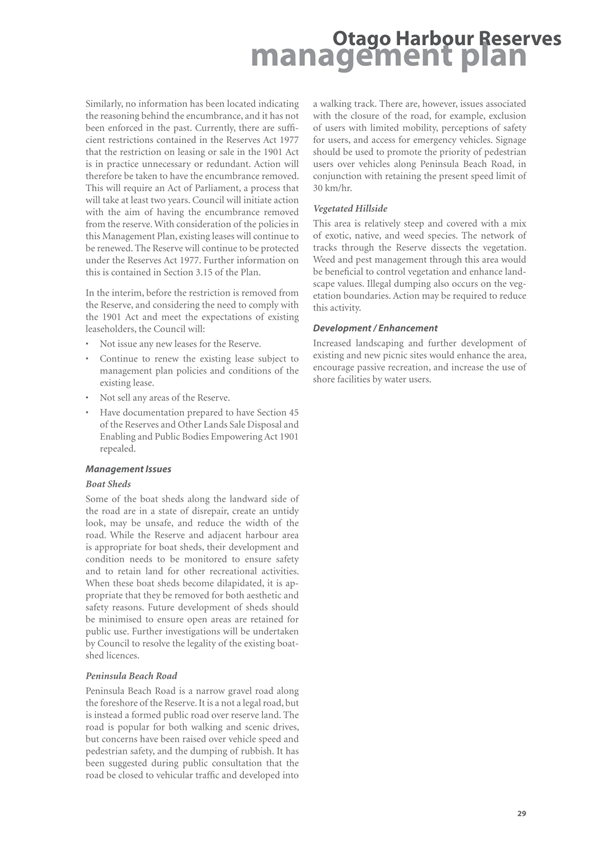
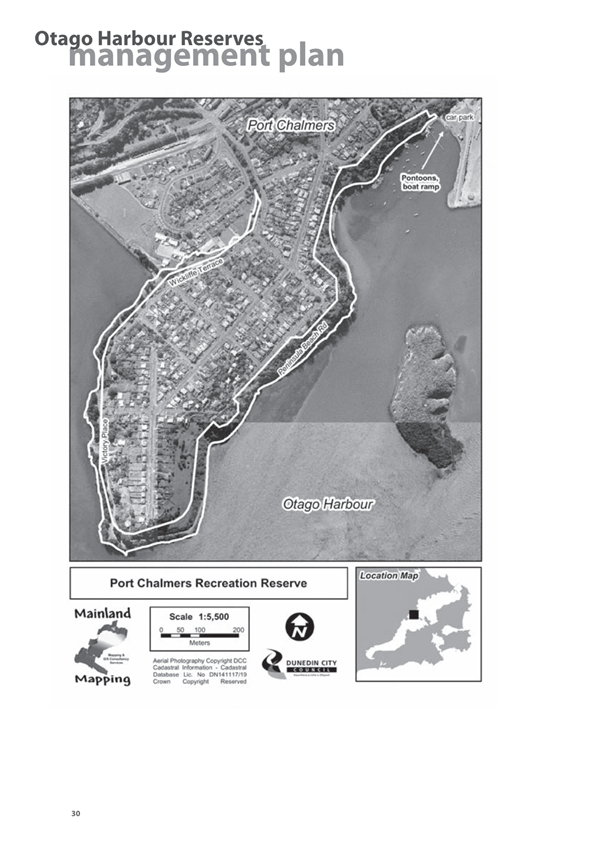
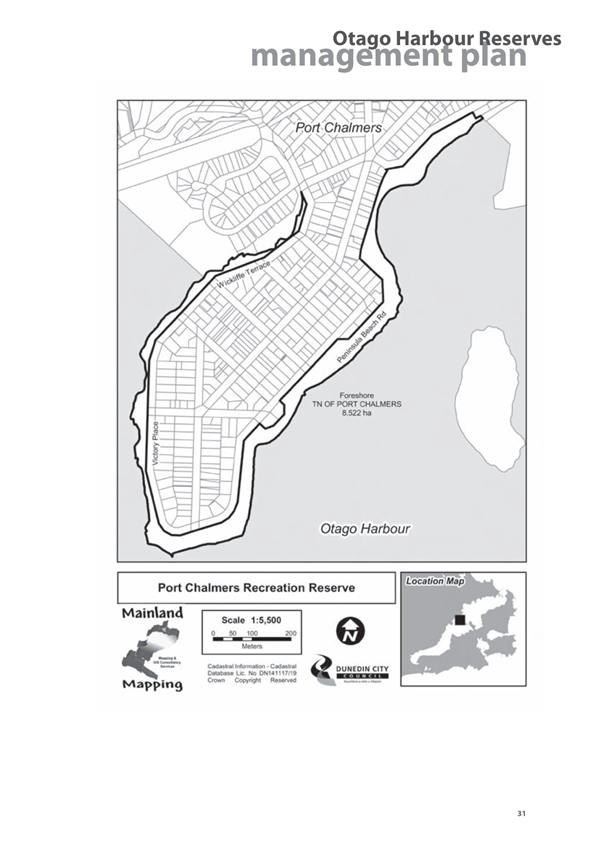
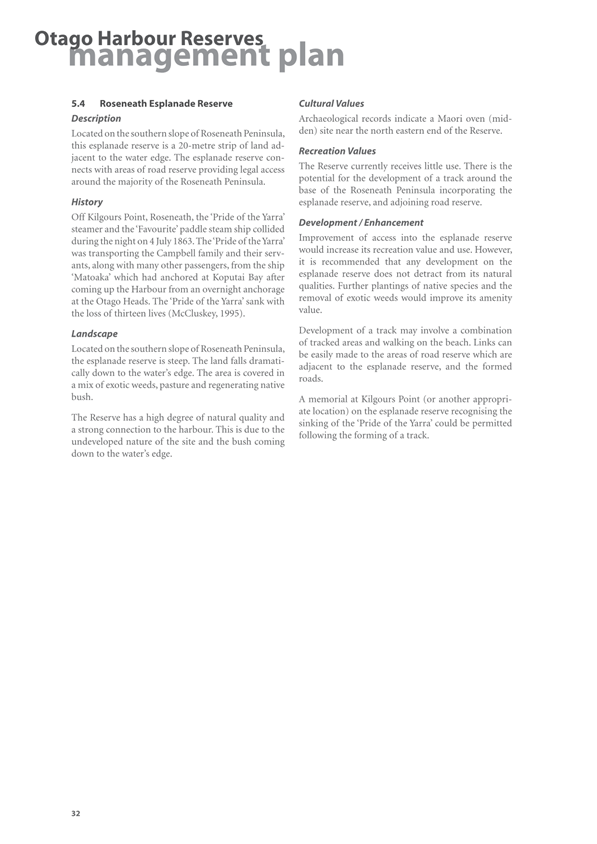
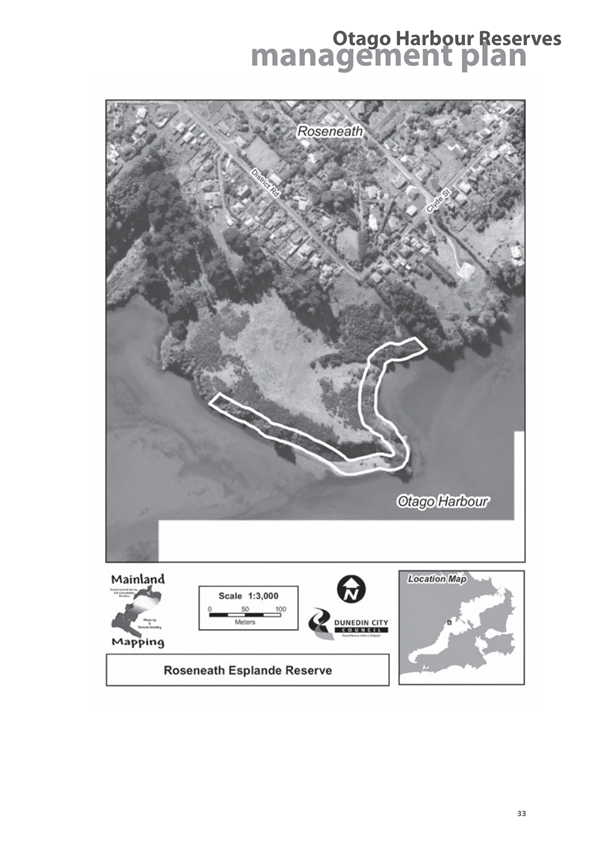
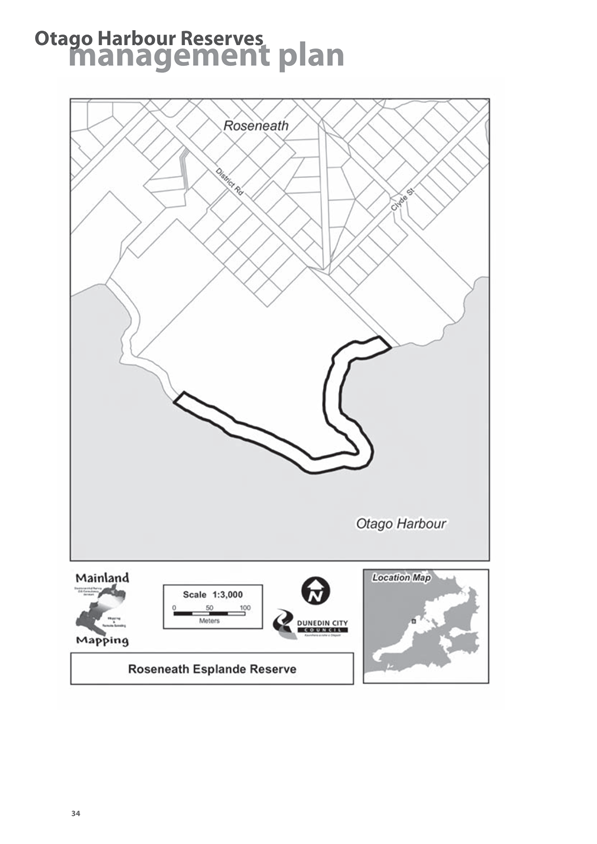
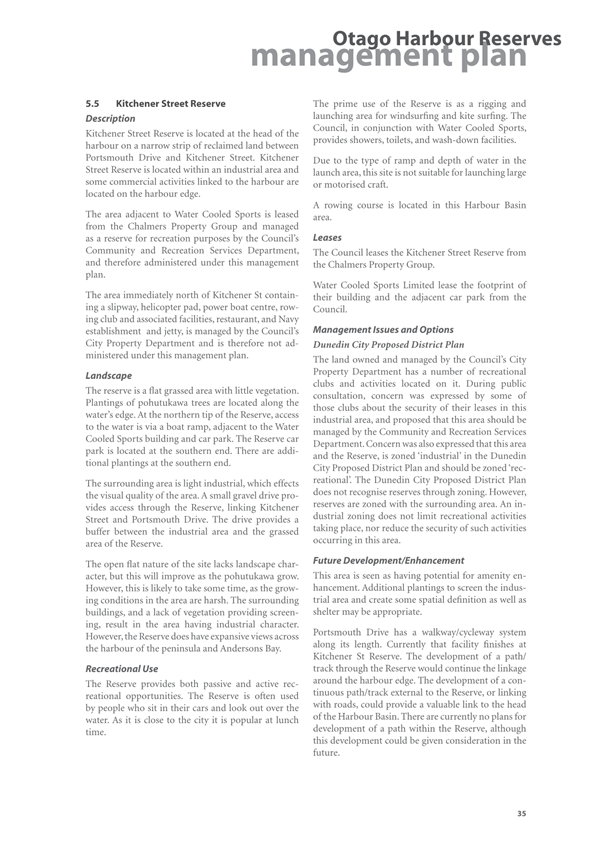
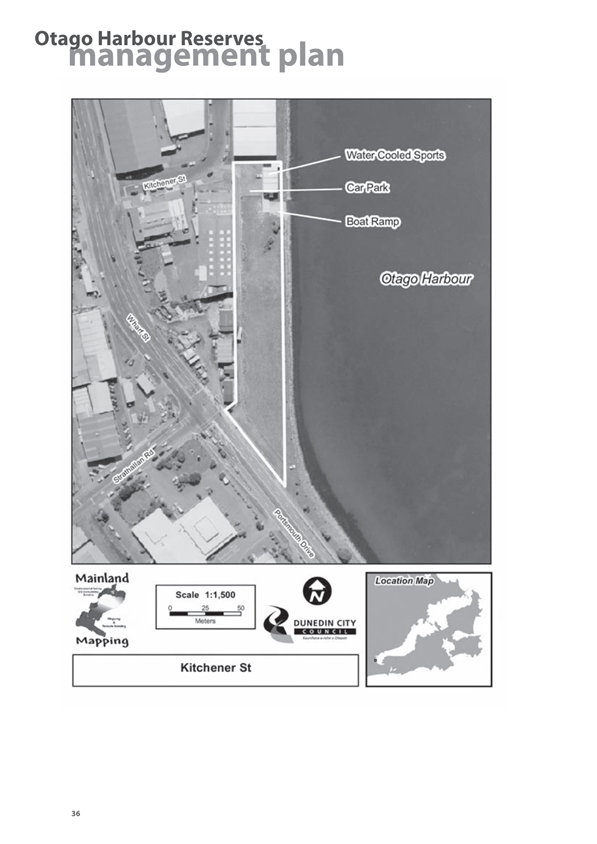
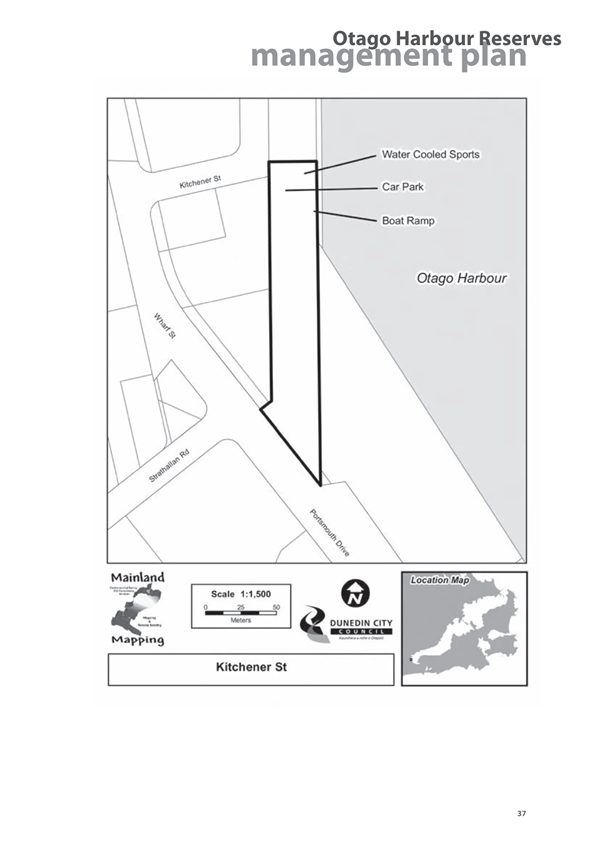
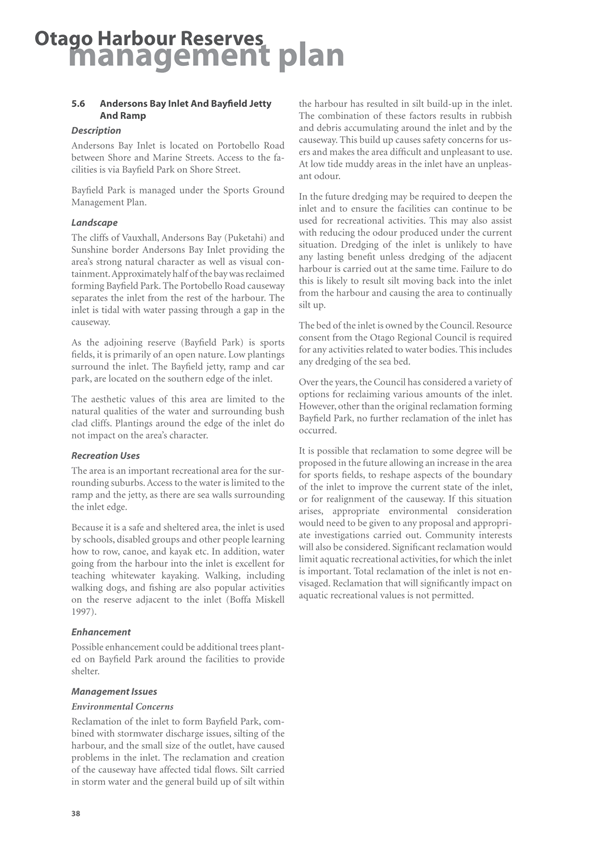
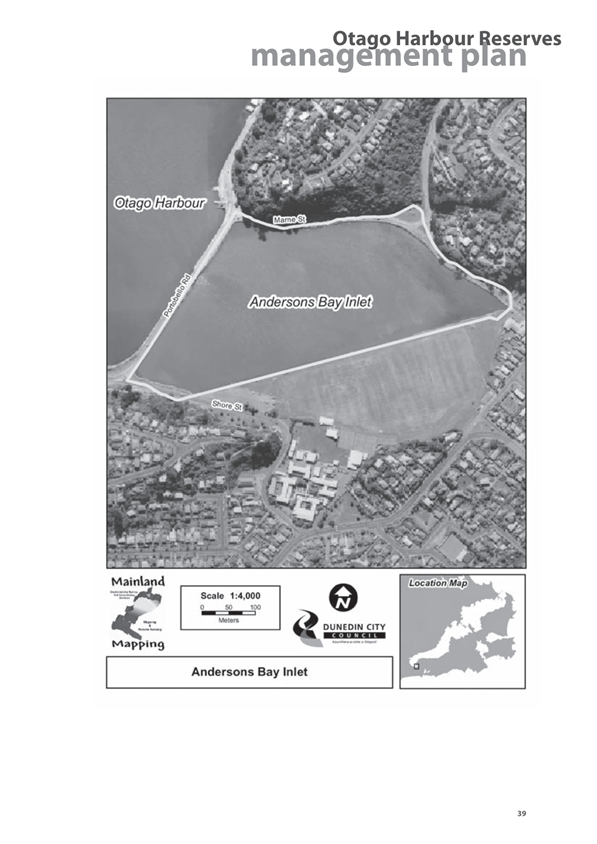
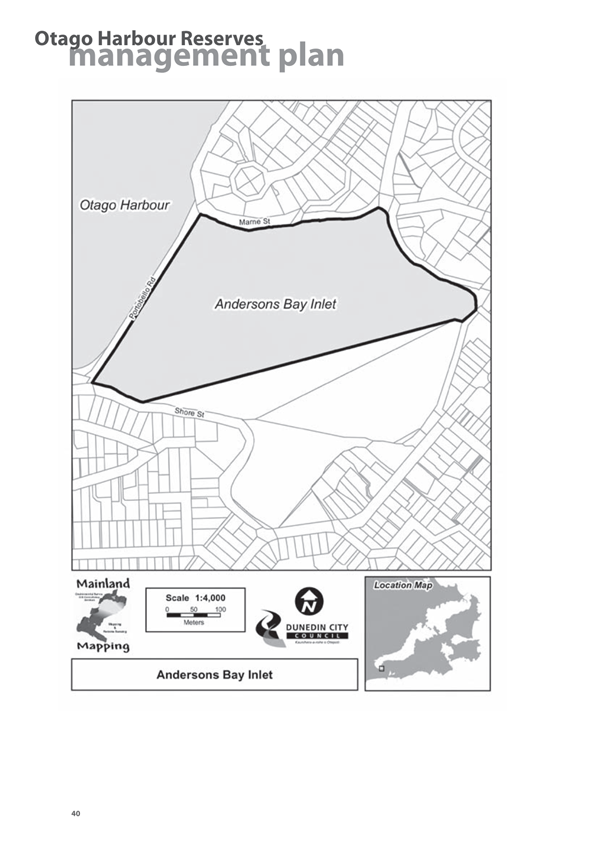
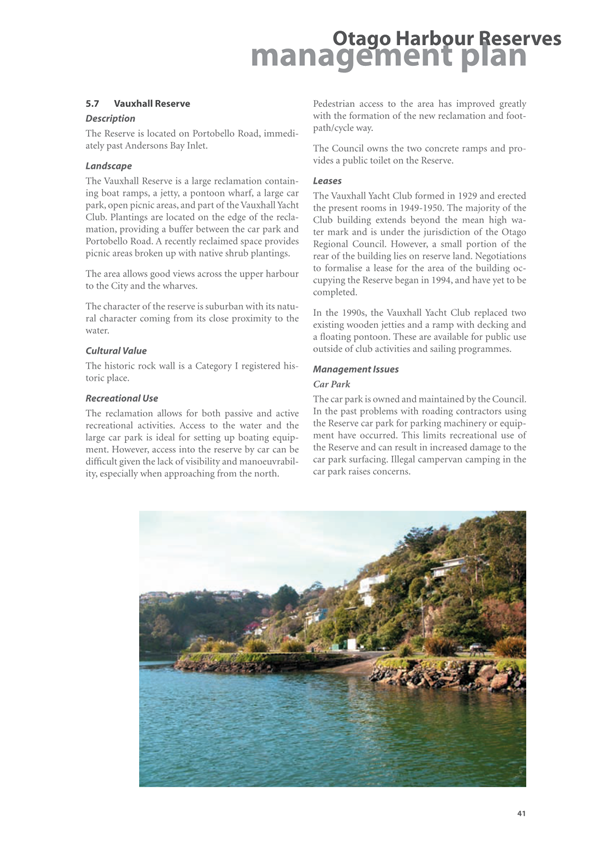
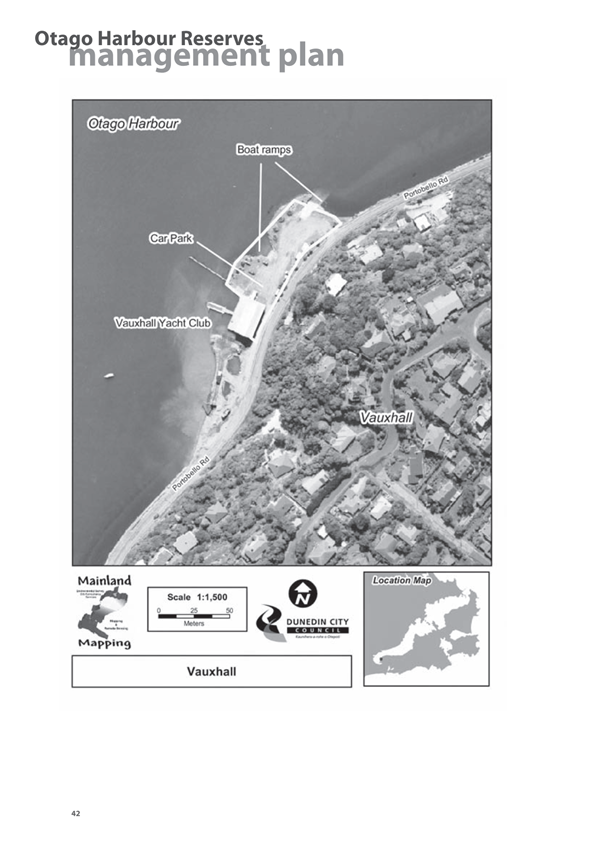
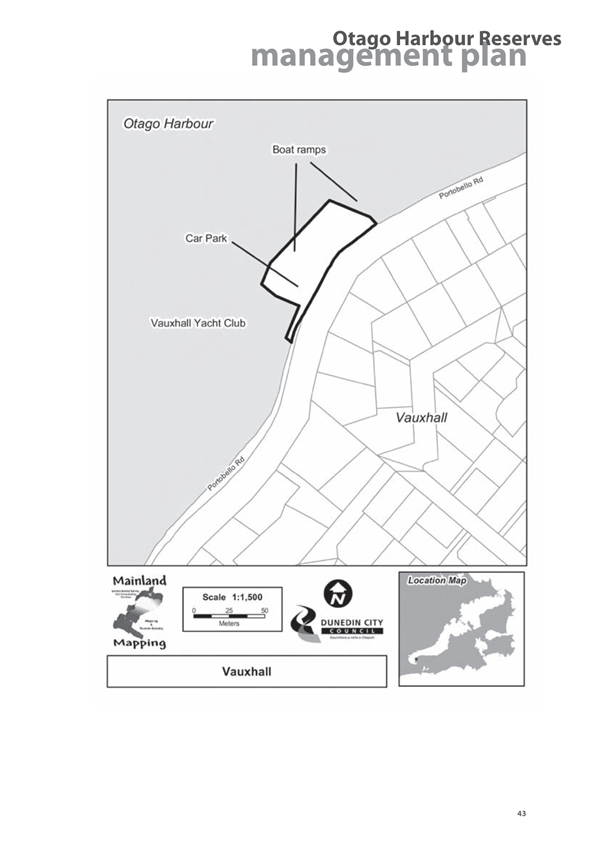
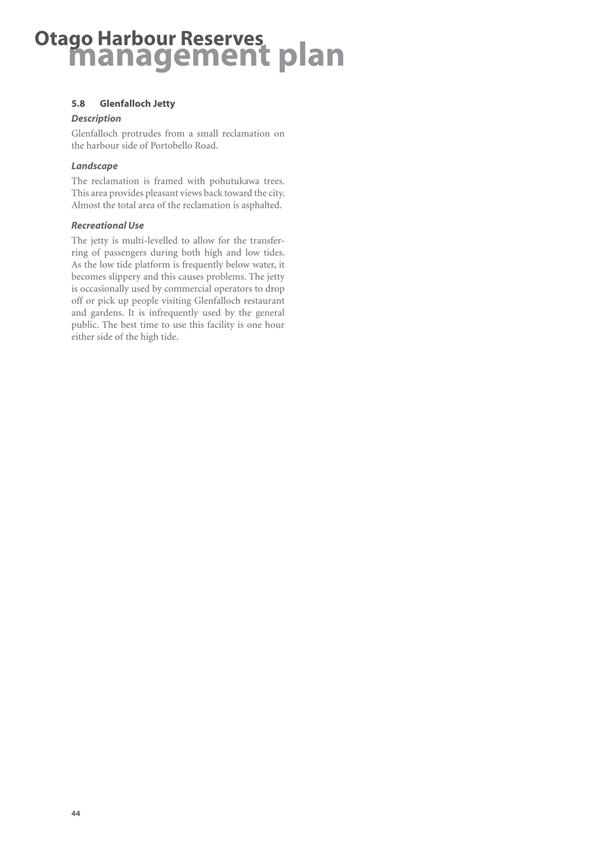
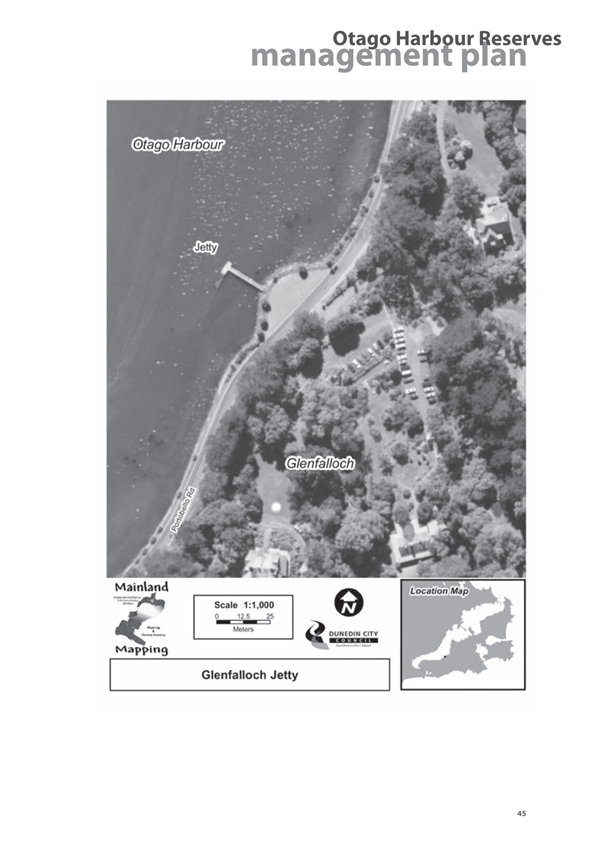
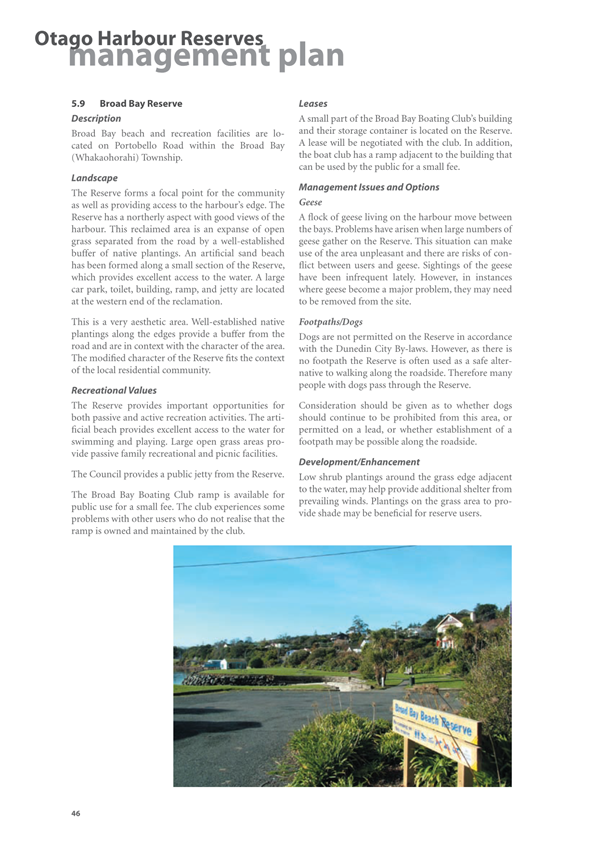
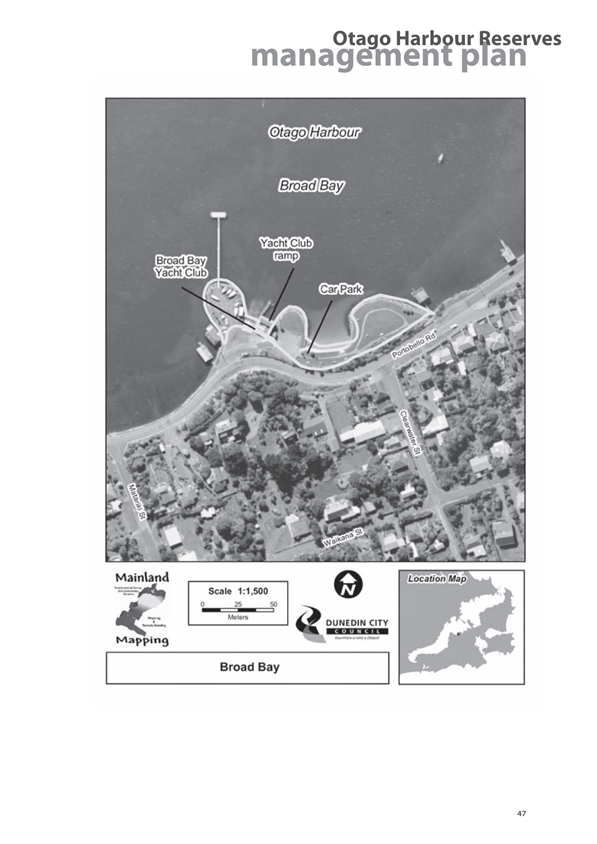
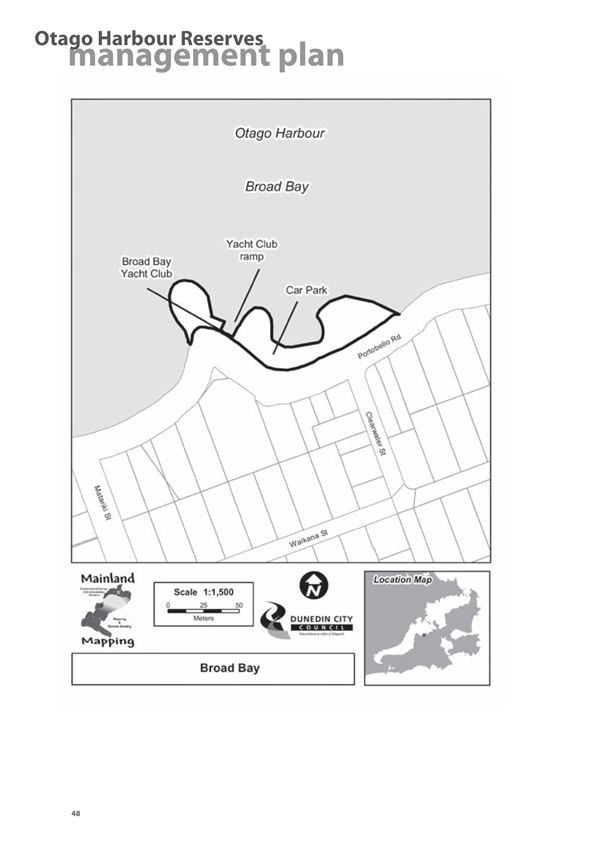
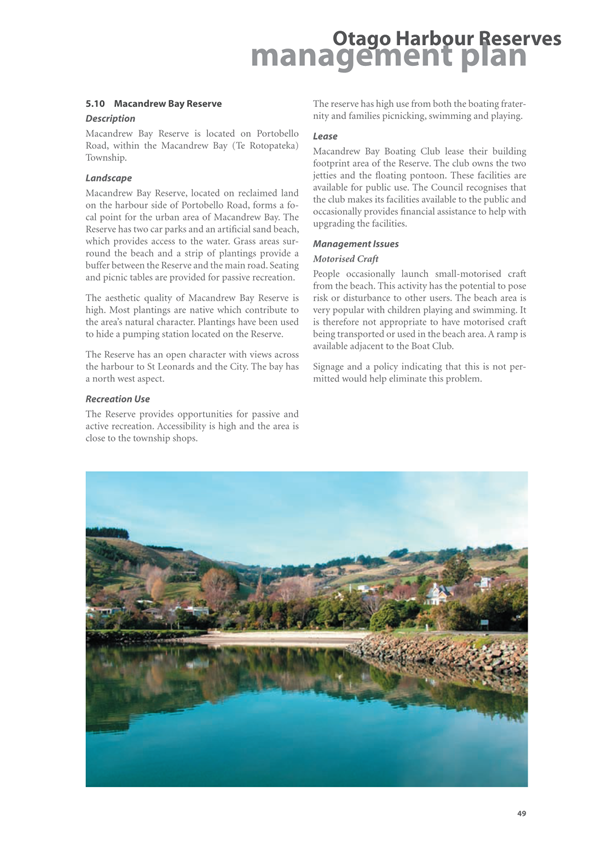
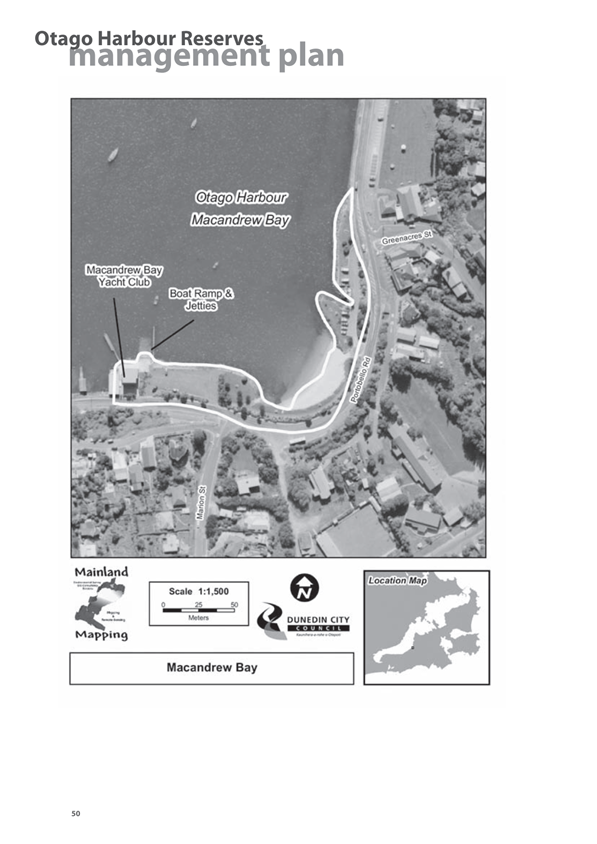
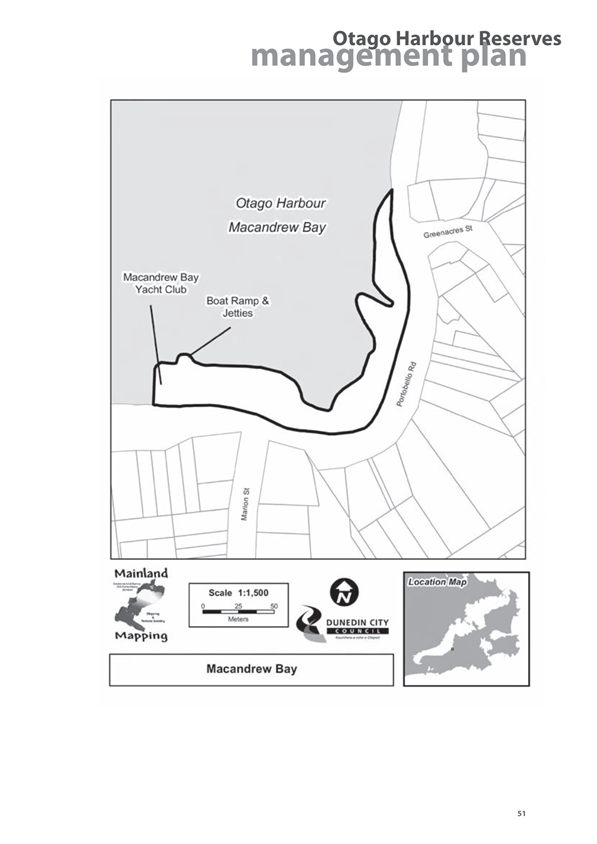
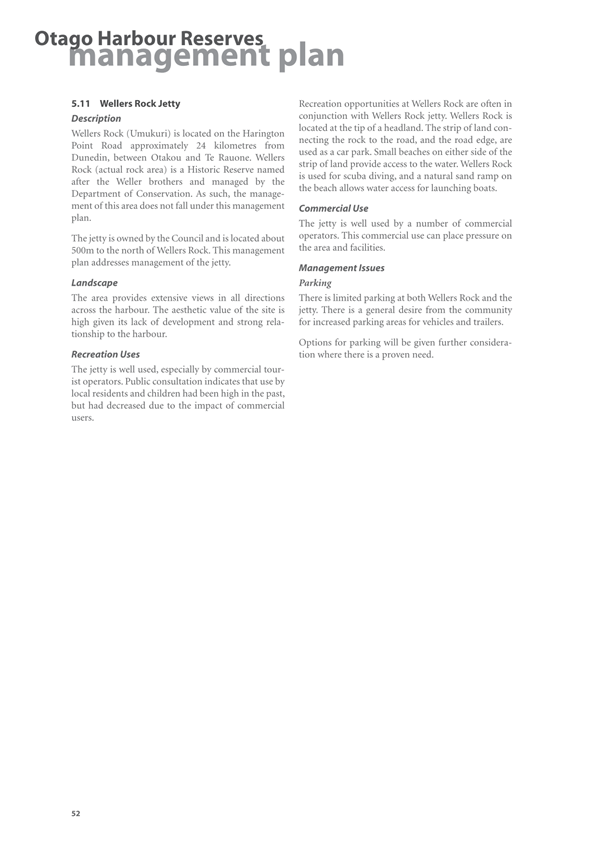
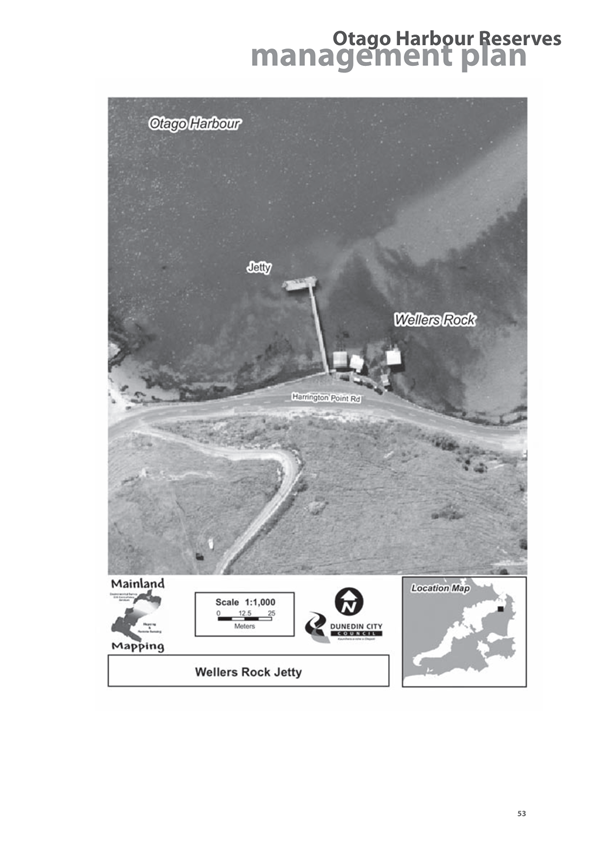
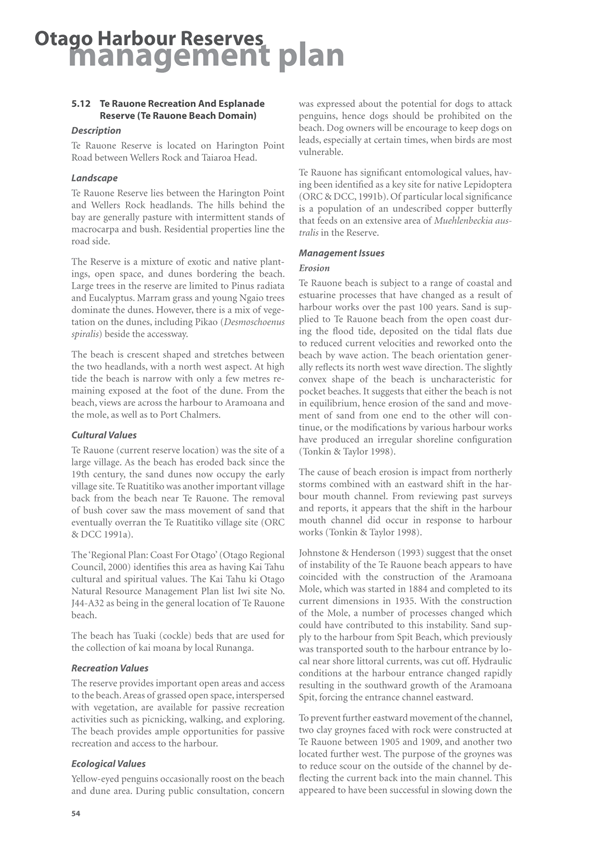
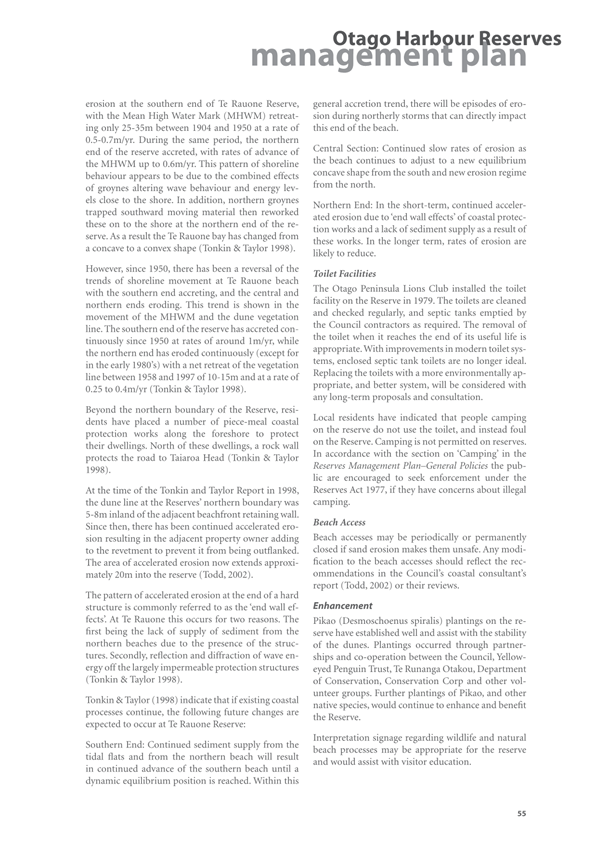
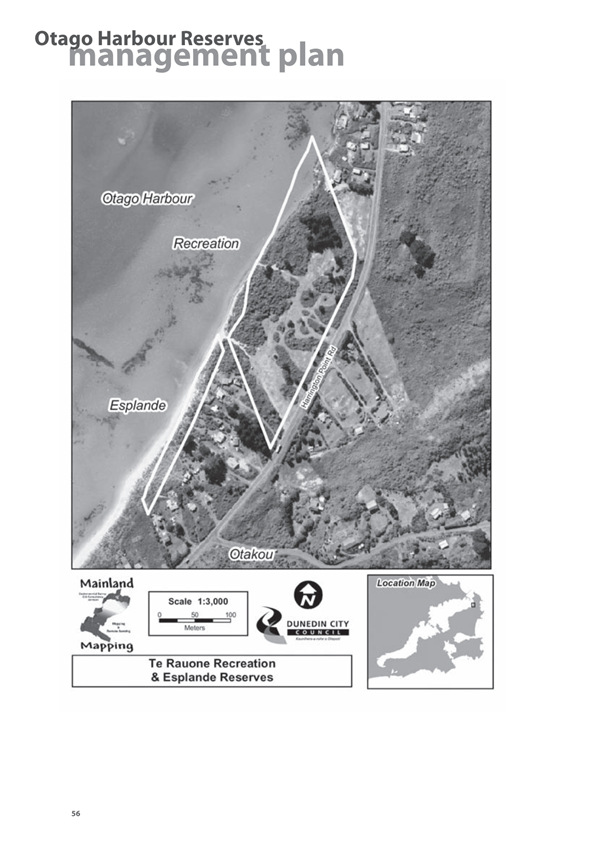
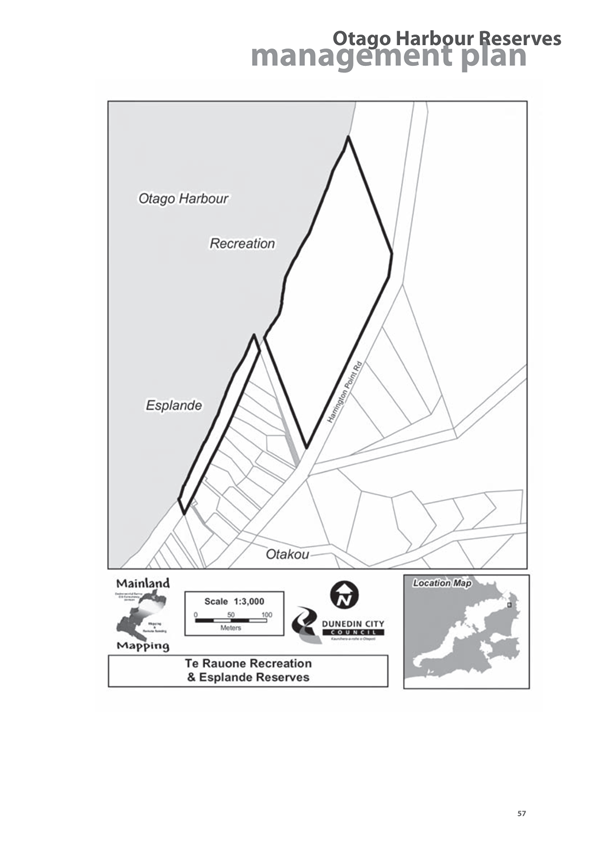
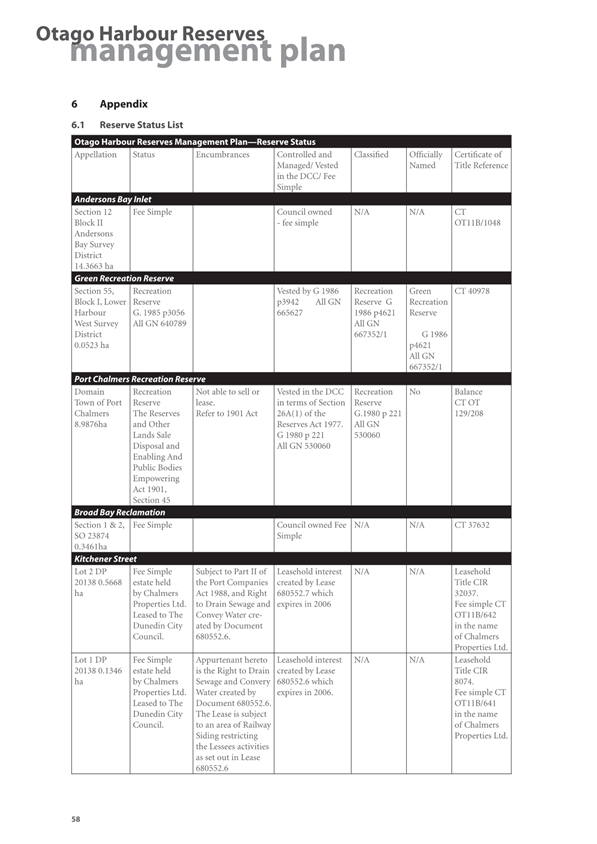
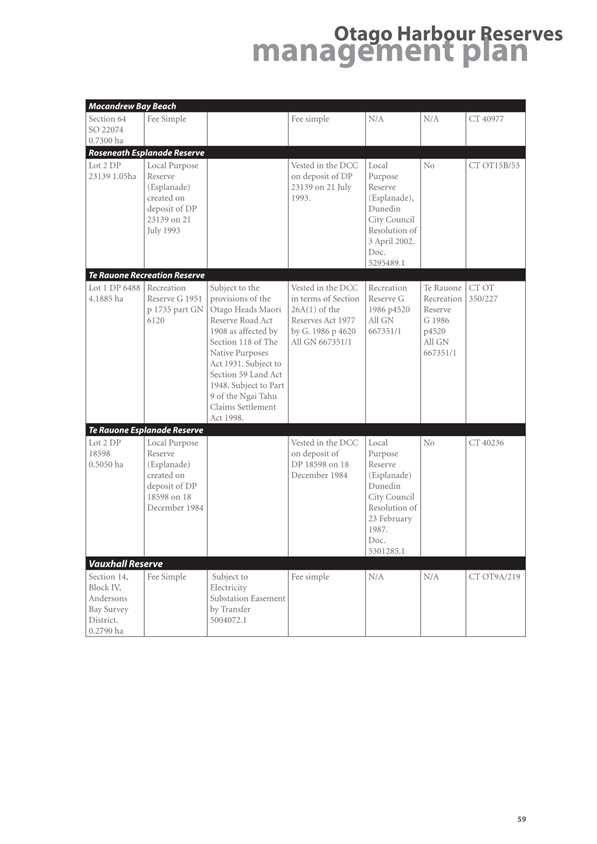
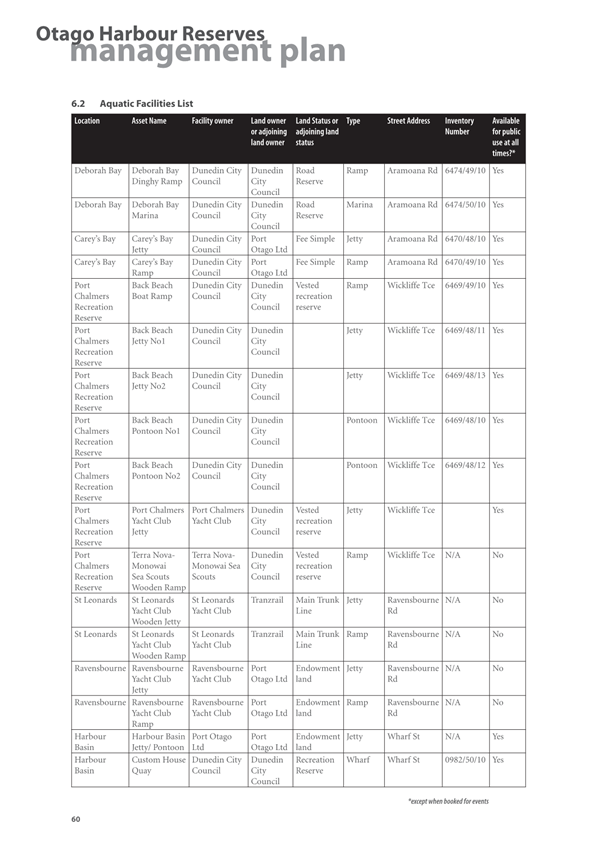
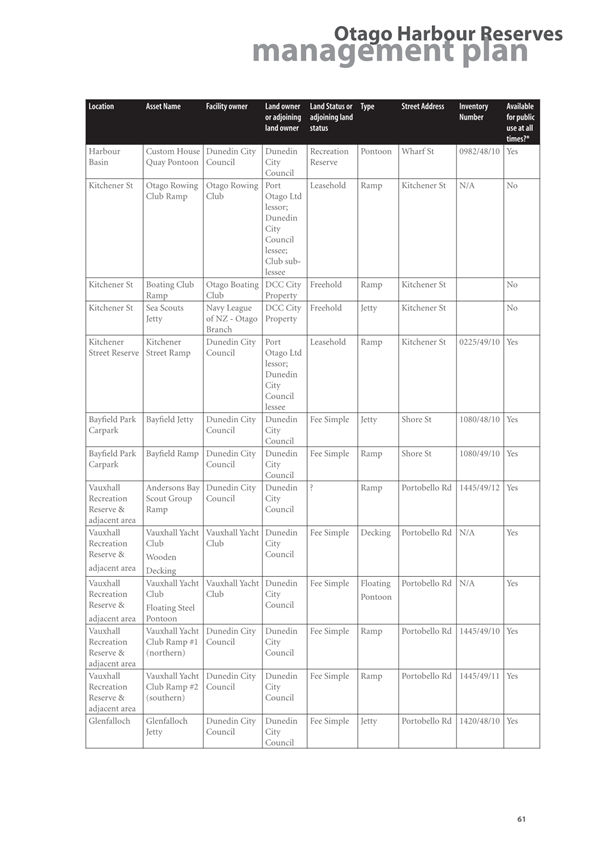
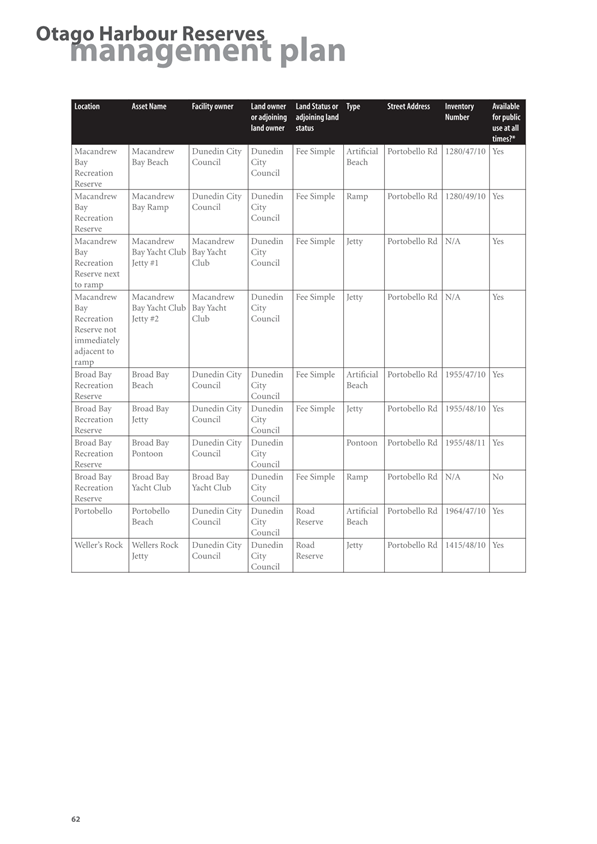
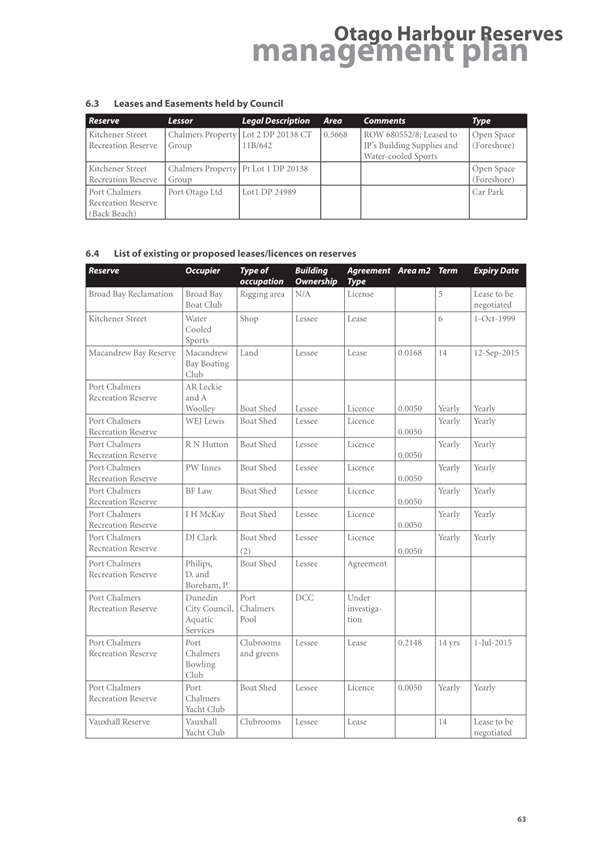
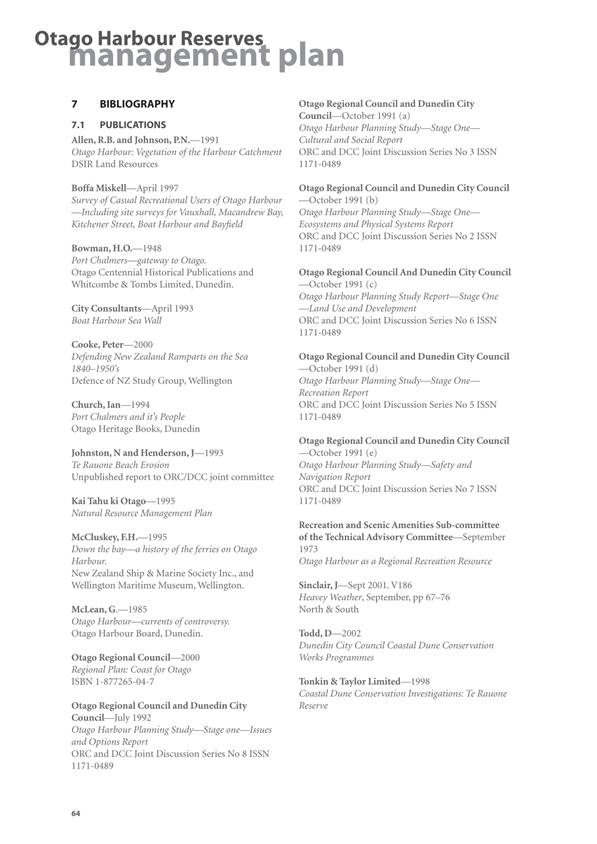
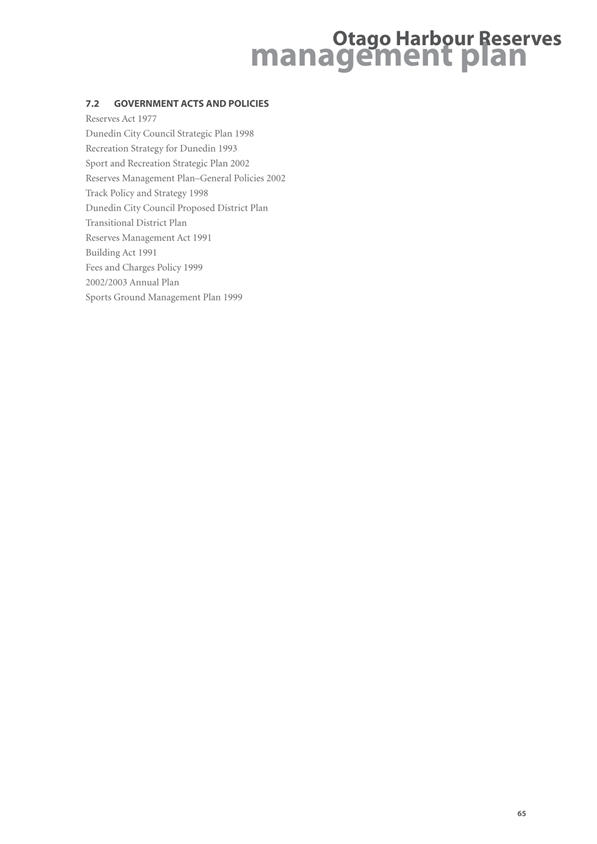
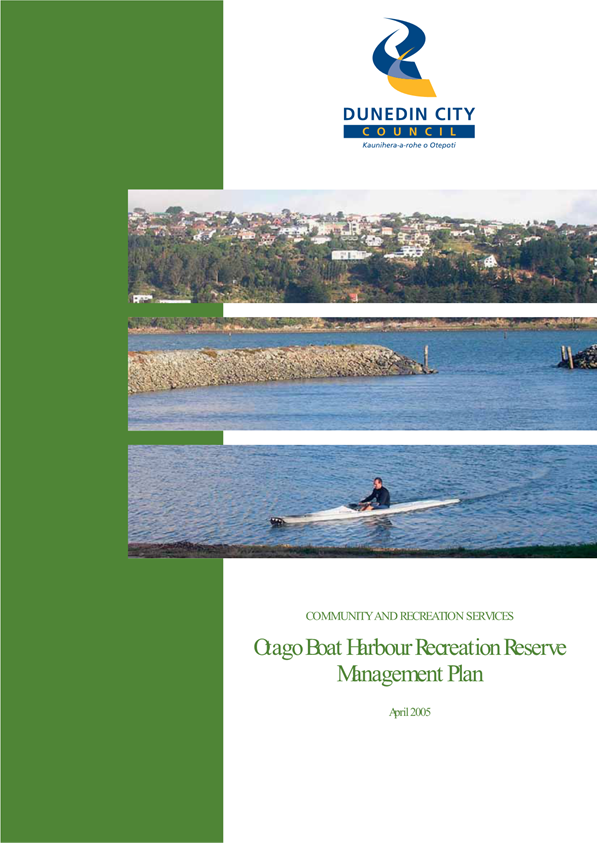
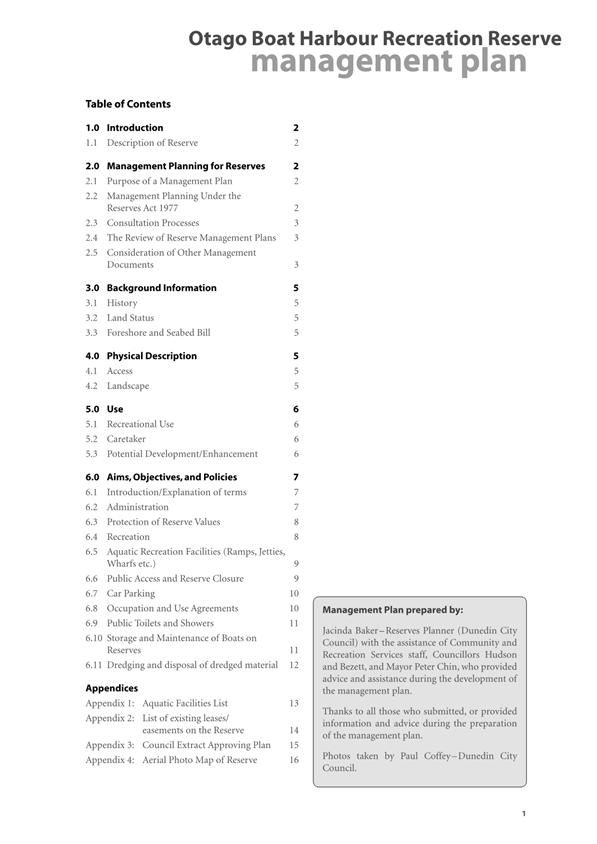
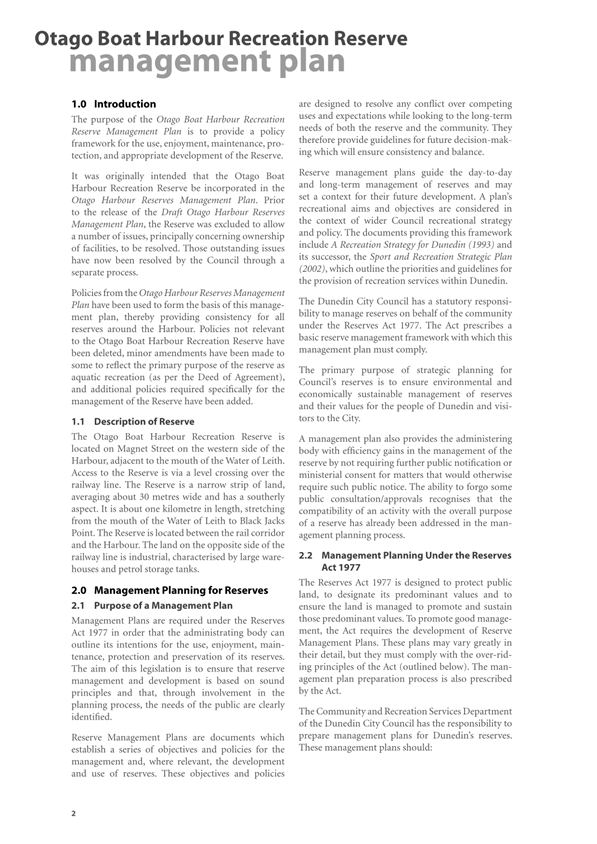
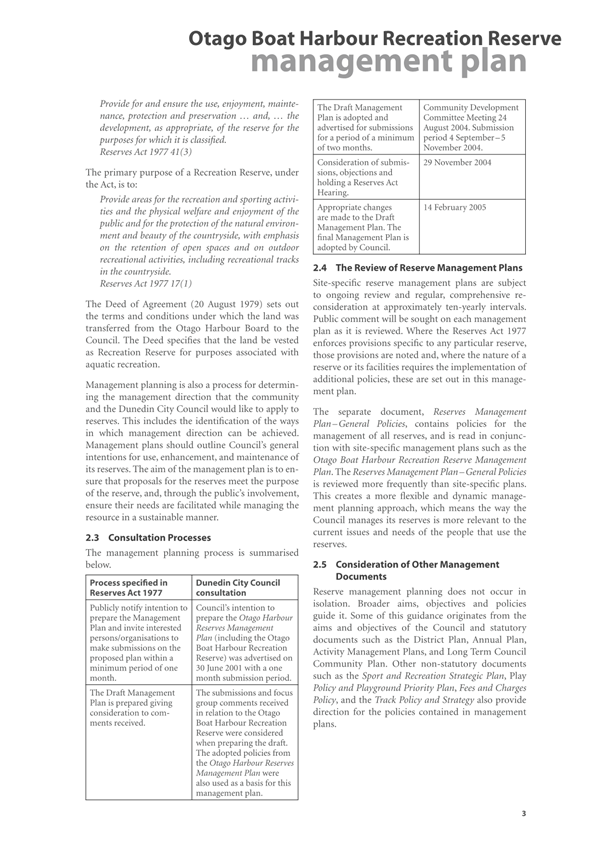
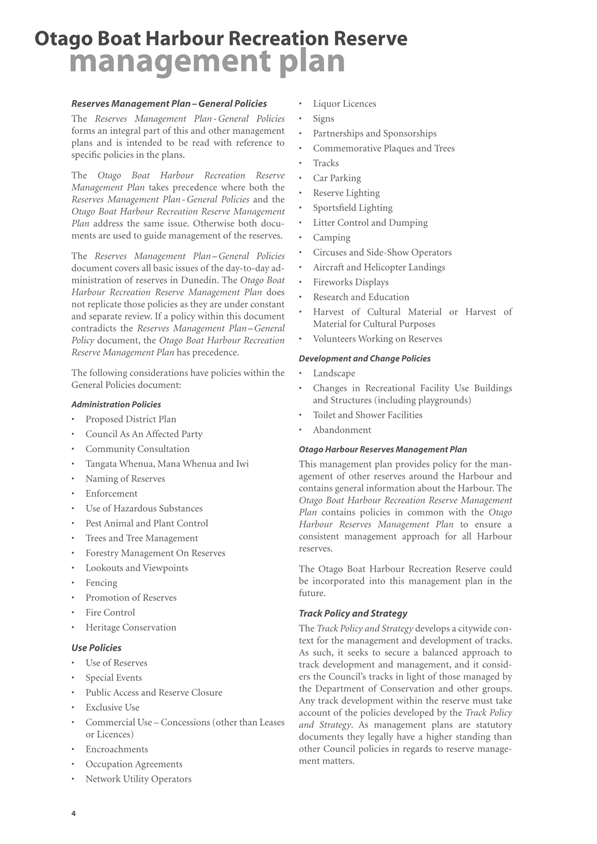
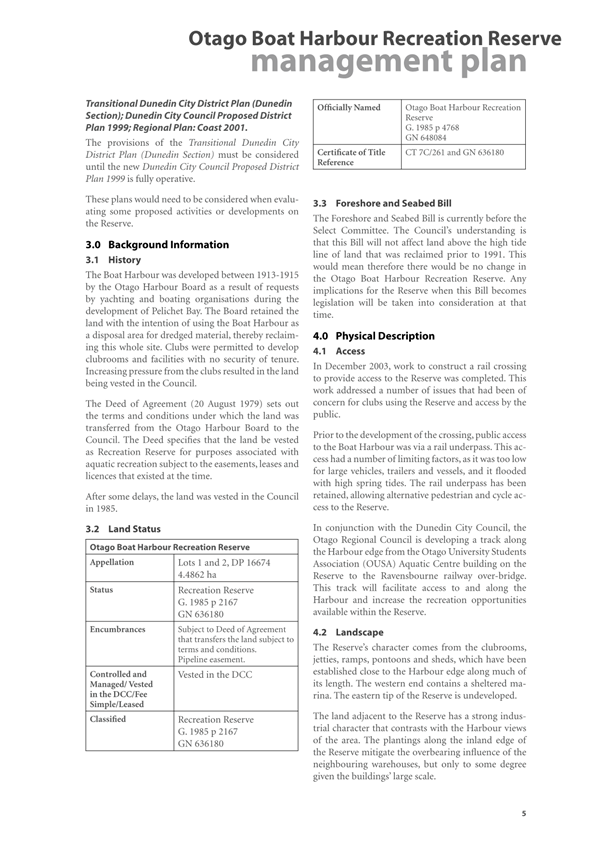
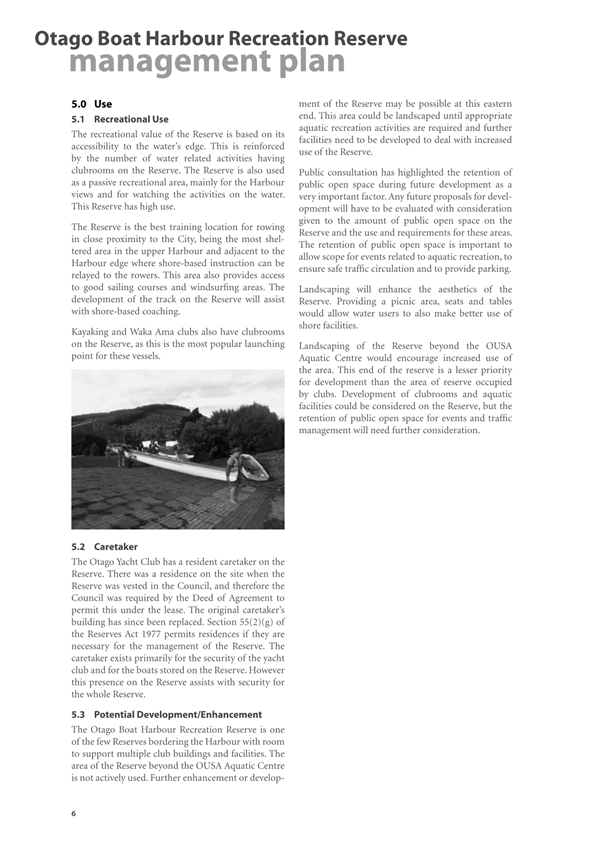
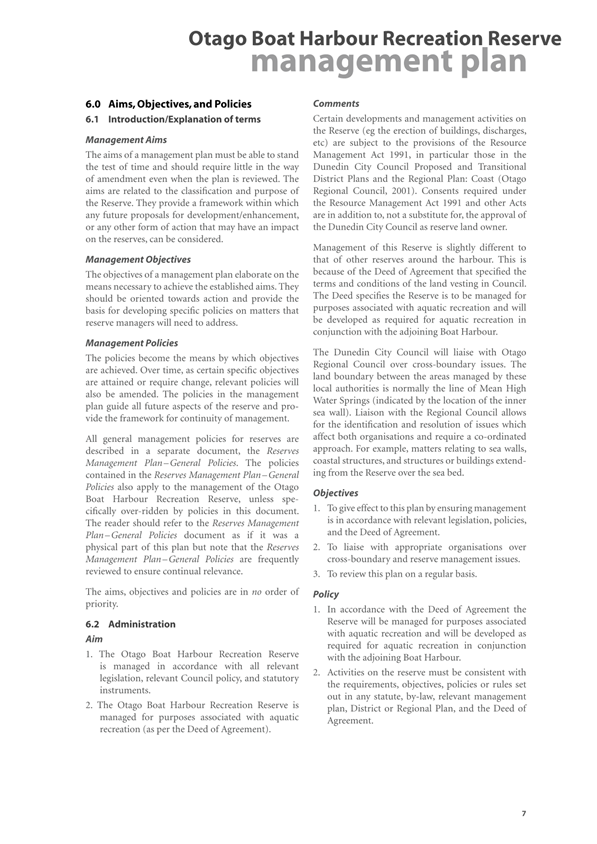
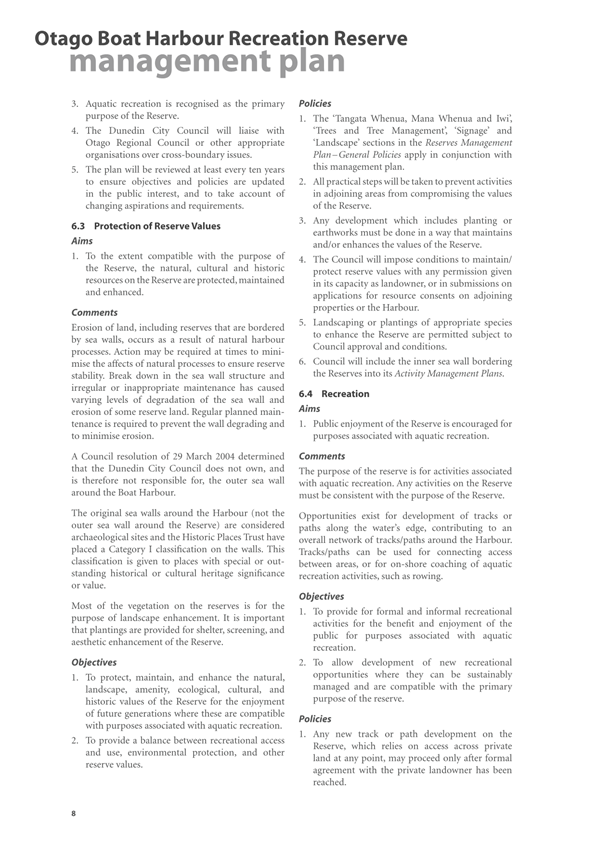
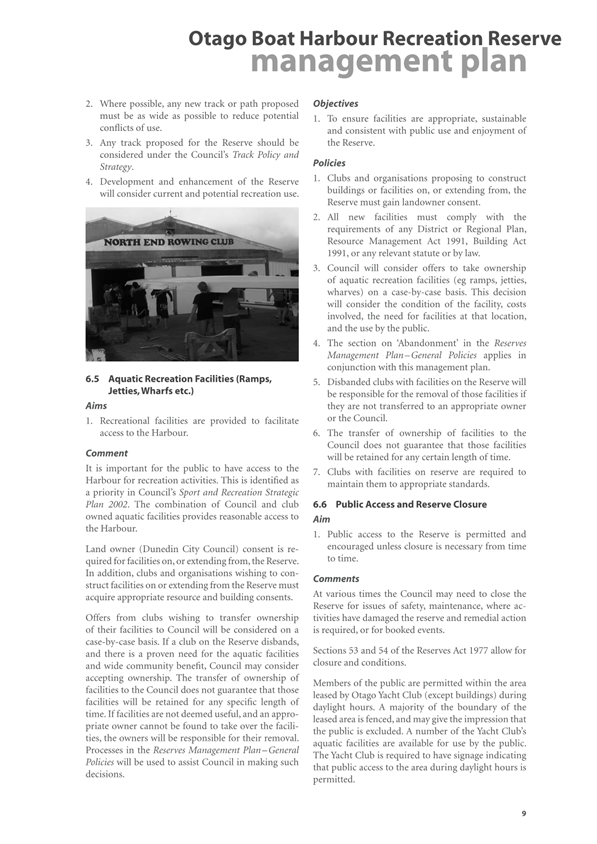
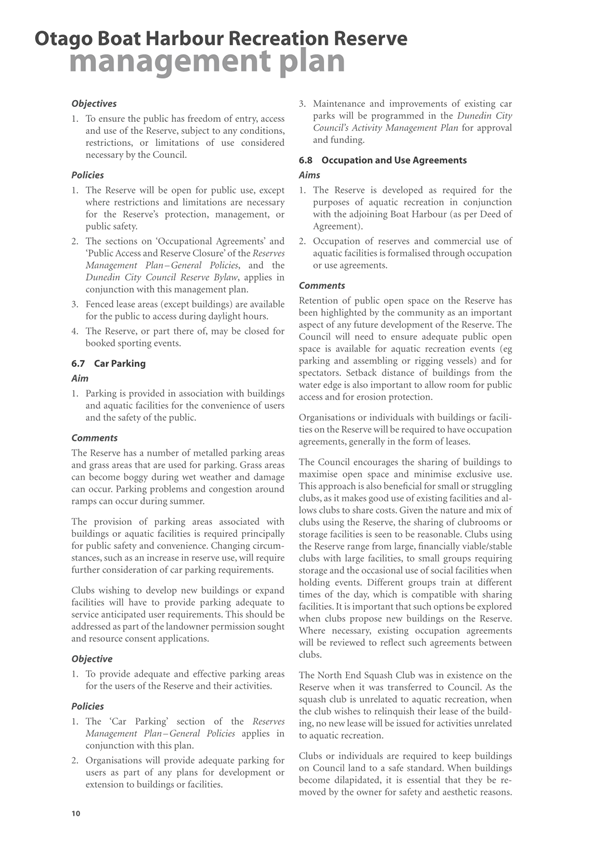
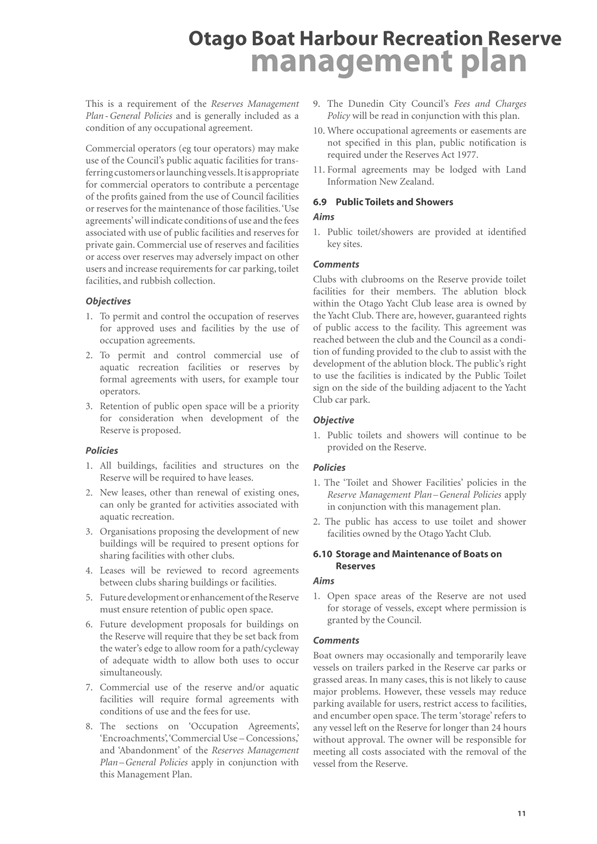
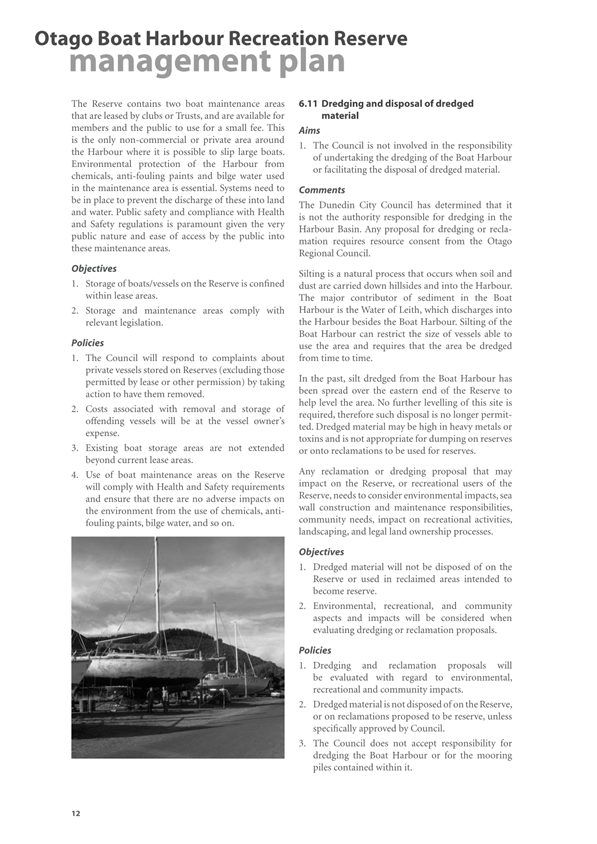
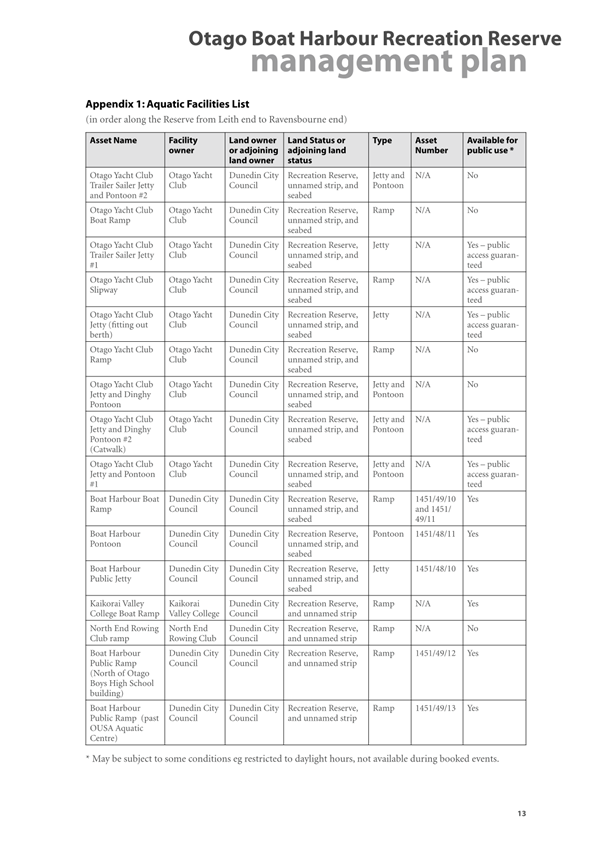
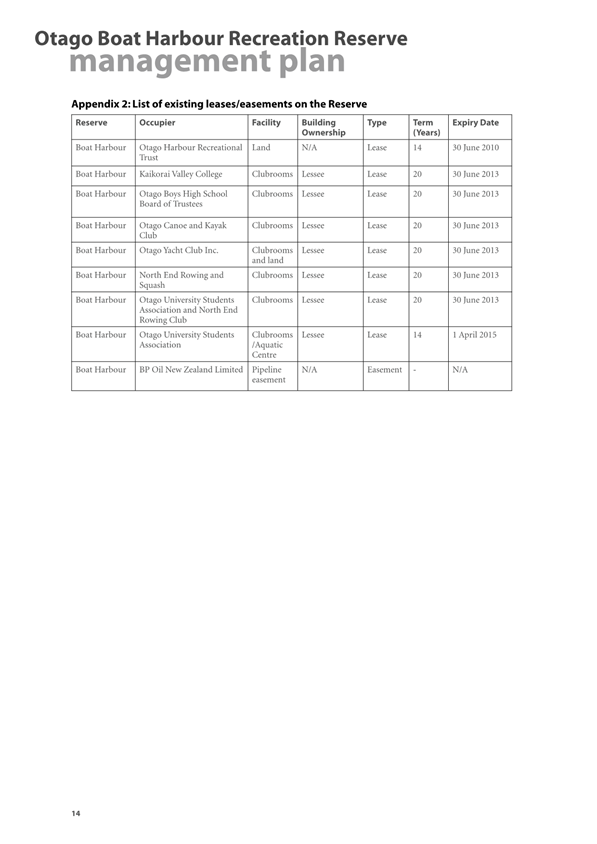
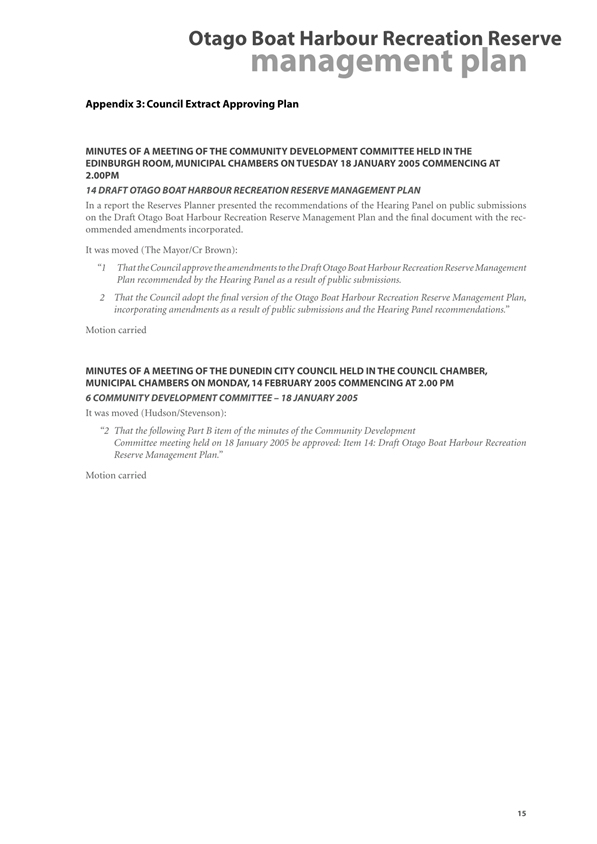
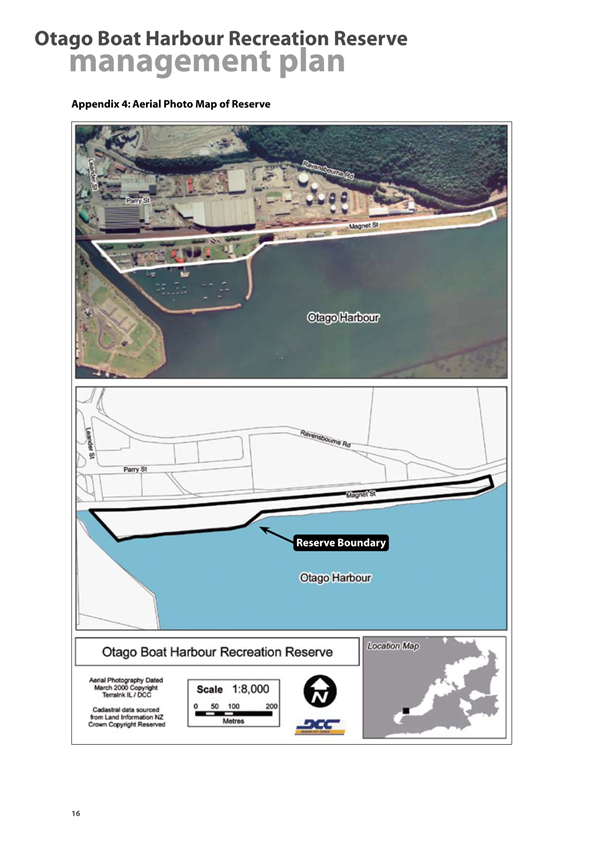
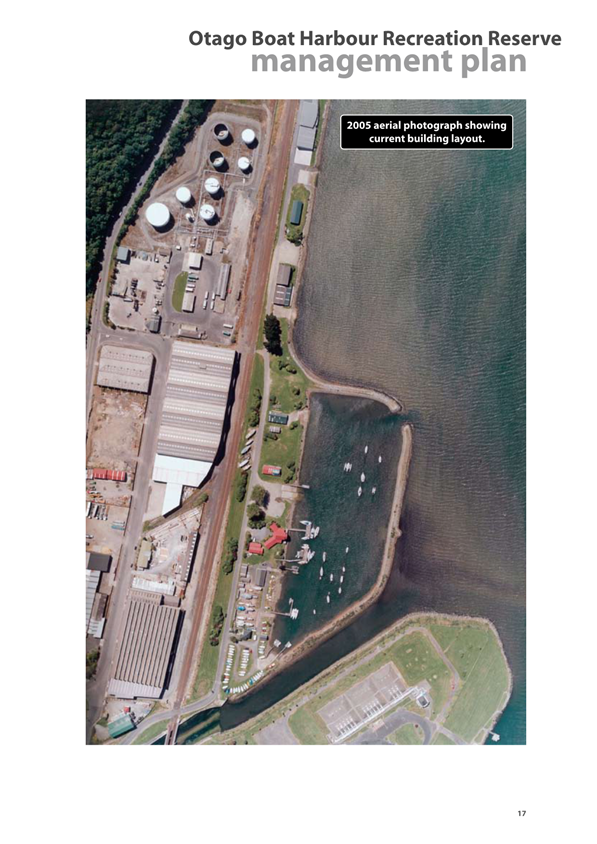
|

|
Strategy, Planning & Engagement
Committee
13 February 2024
|
Items for Consideration by the Chair
Any items for
consideration by the Chair.
Attachments
There are no attachments for this report.










































































































































































































































